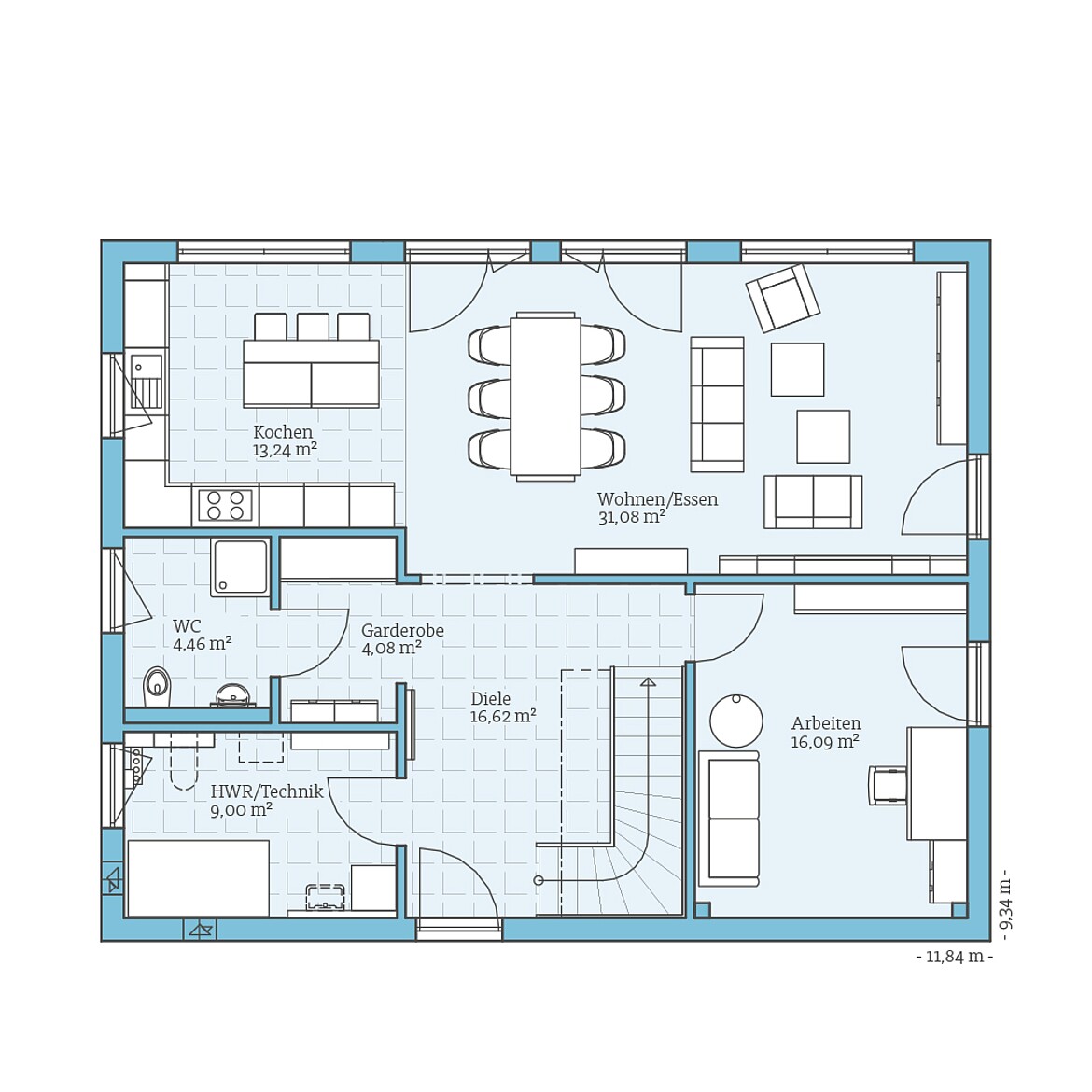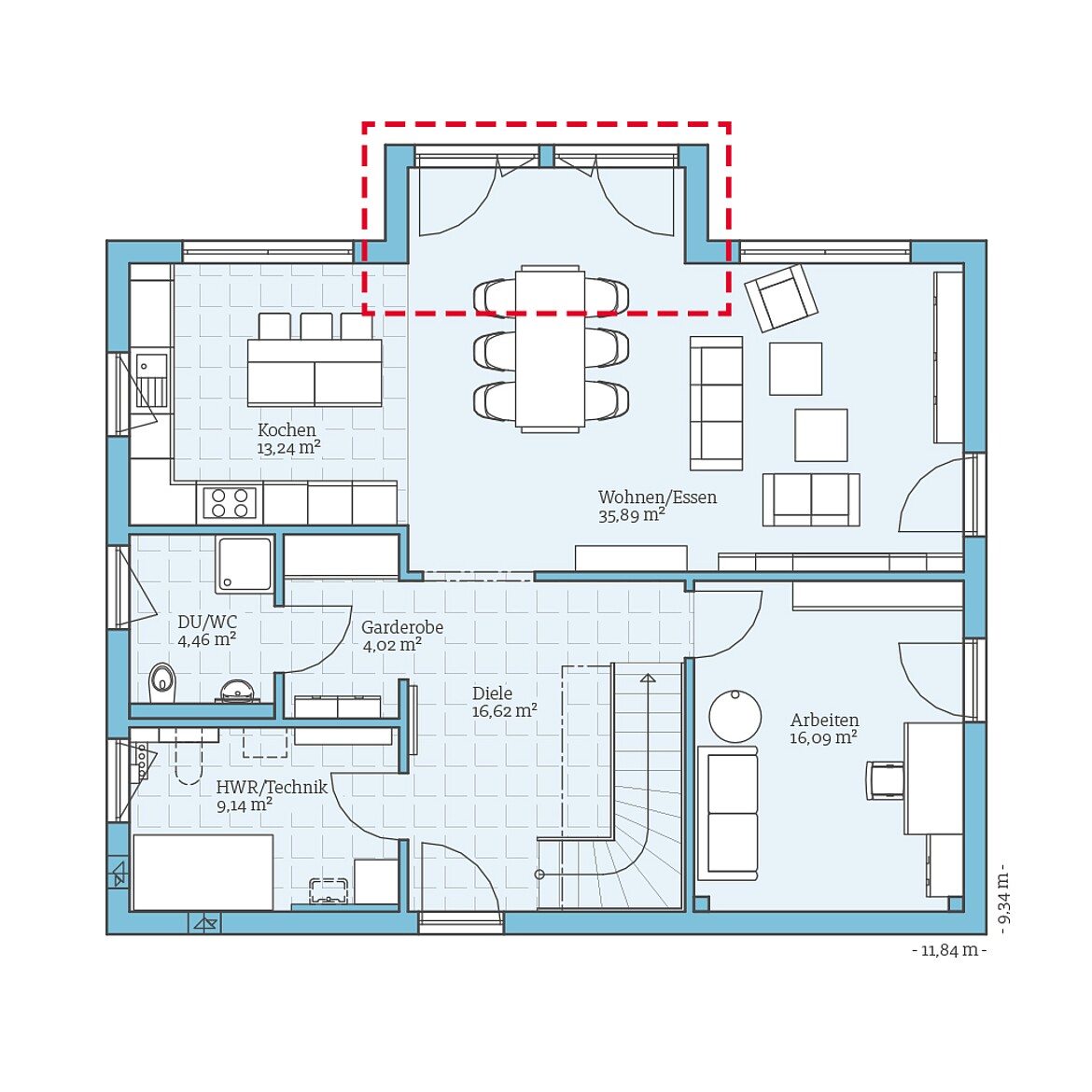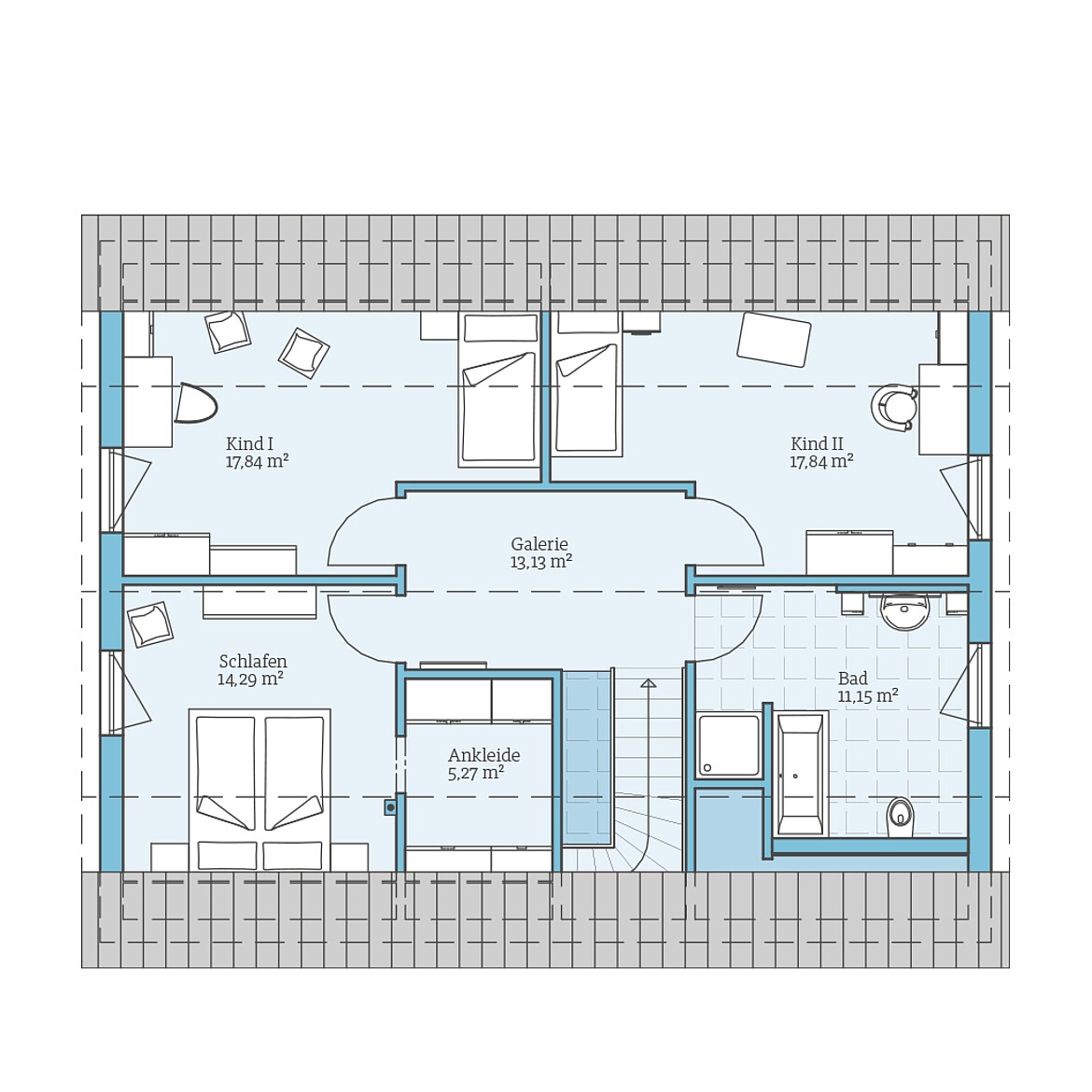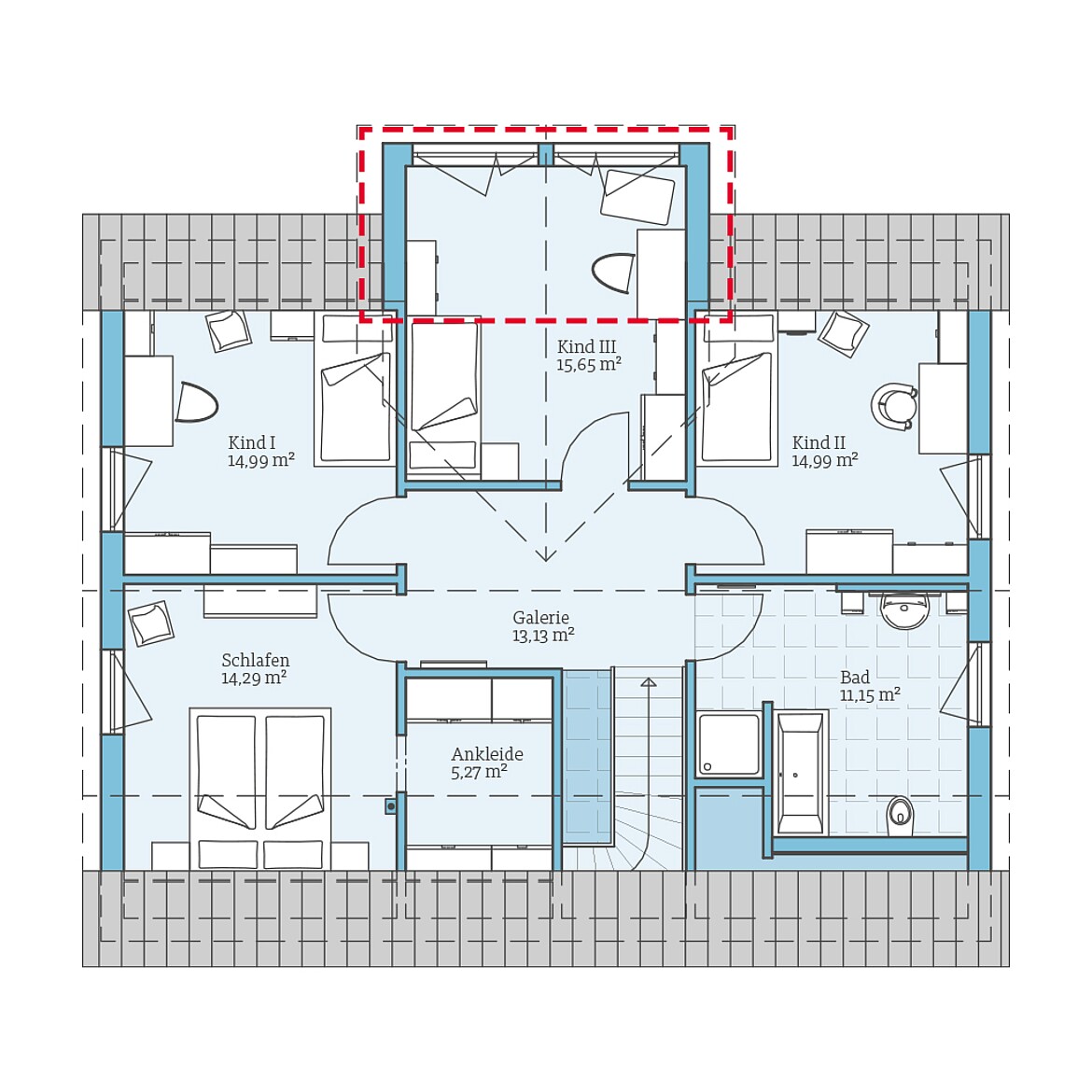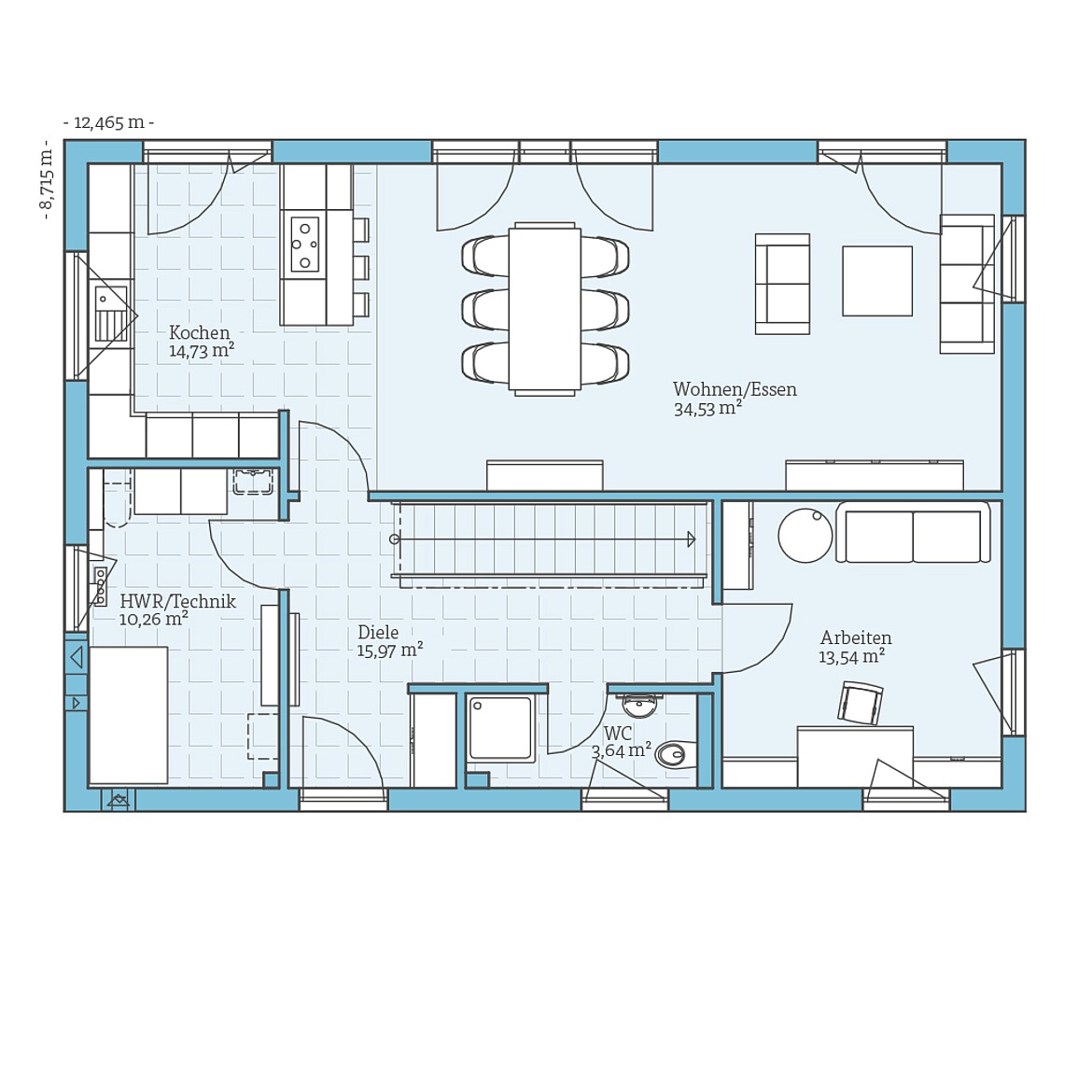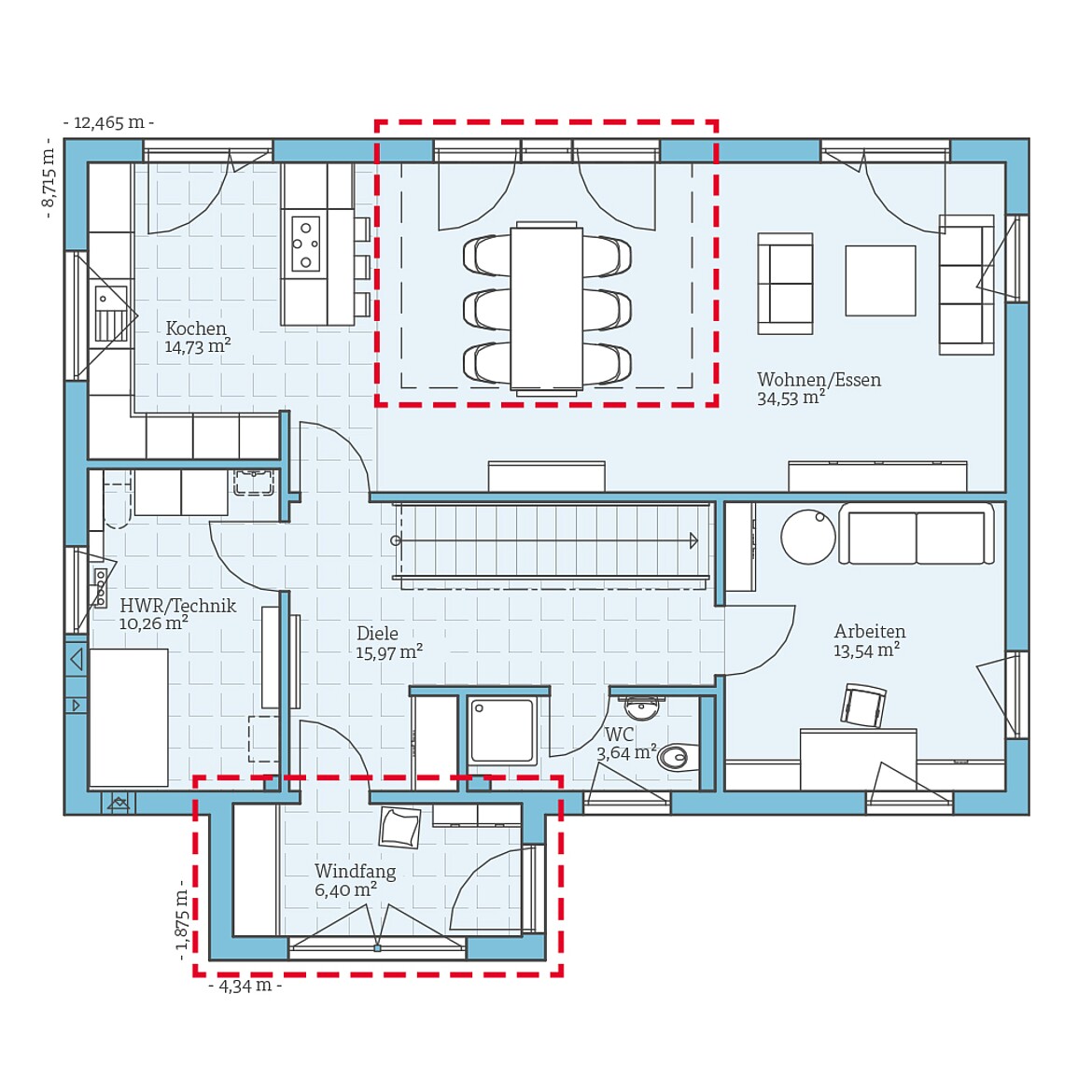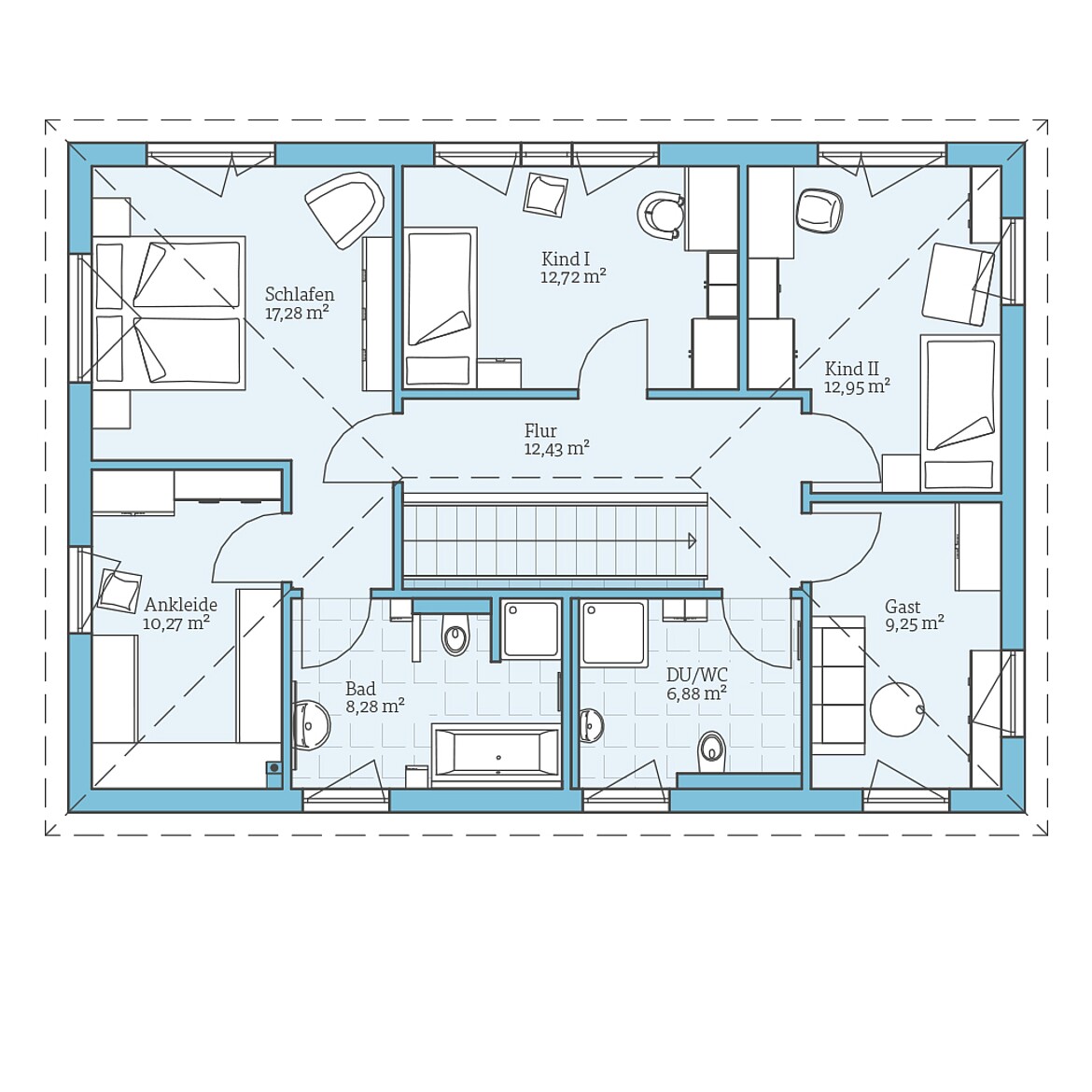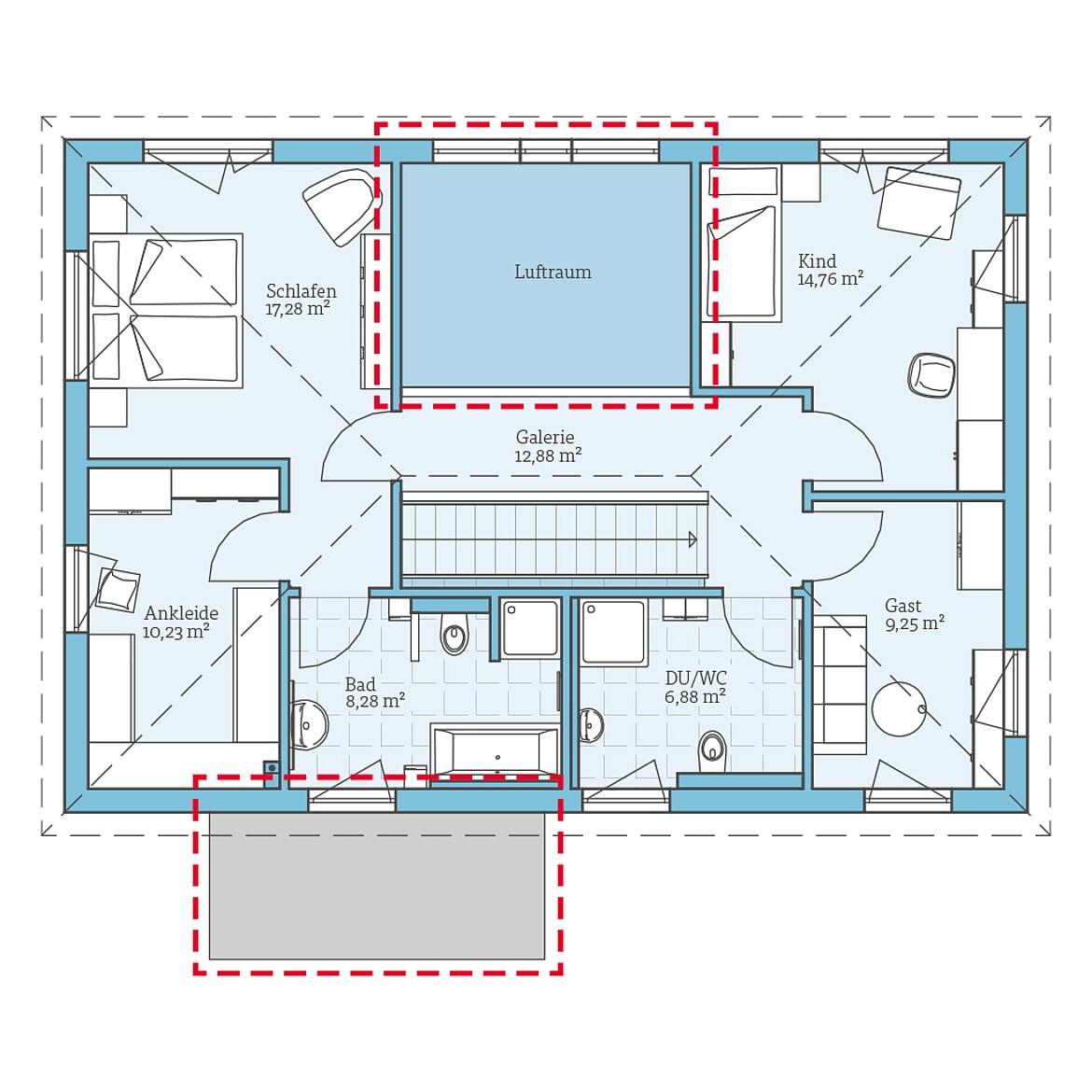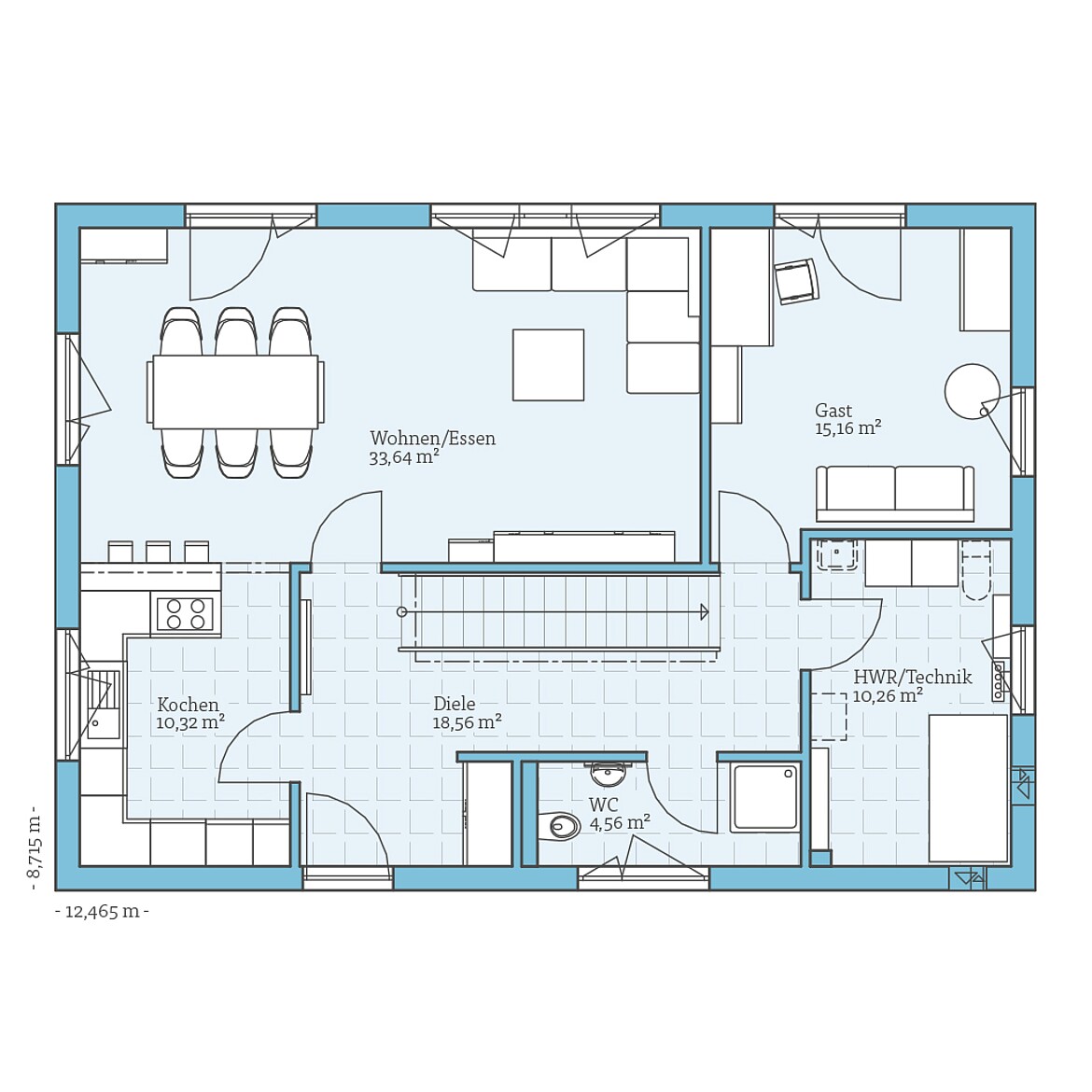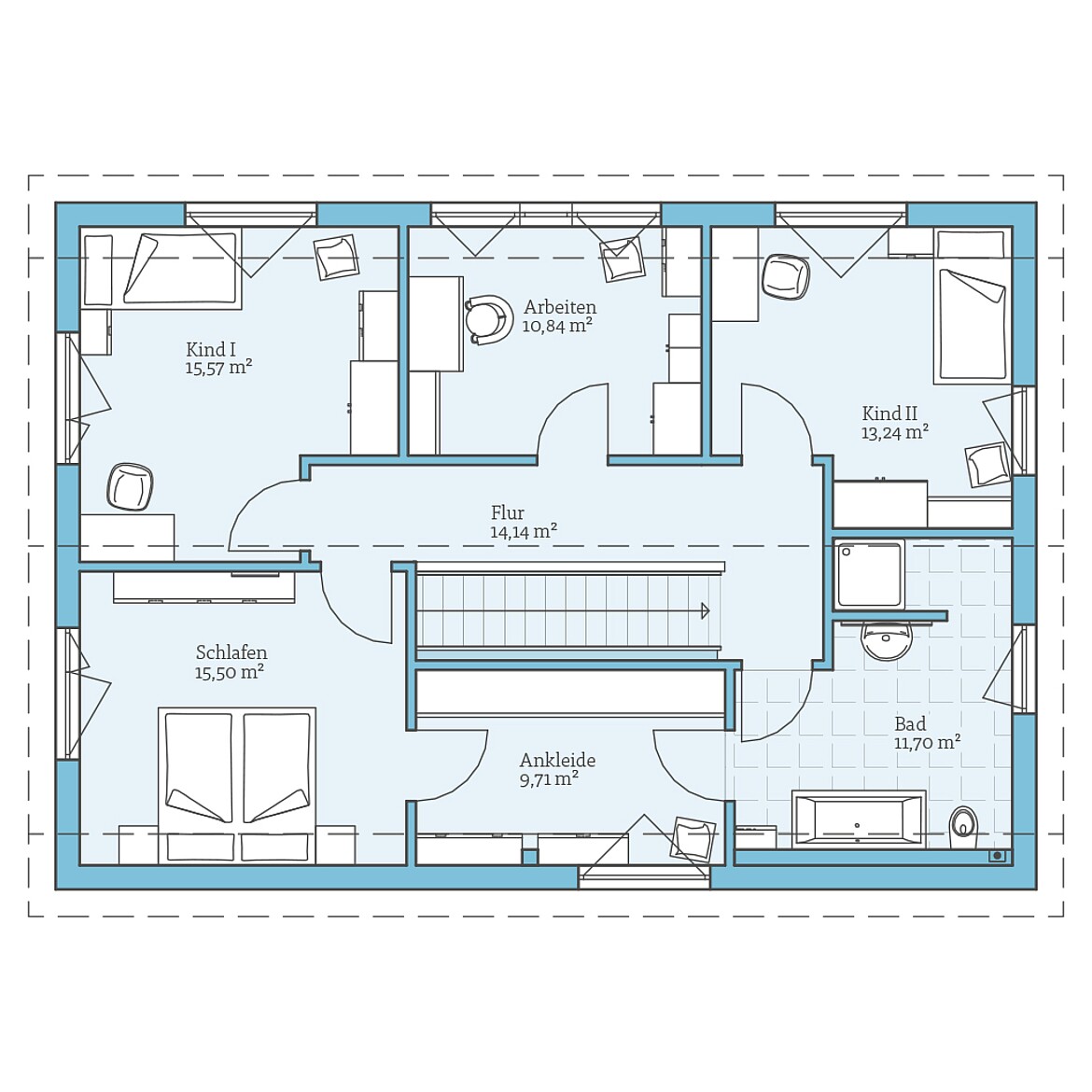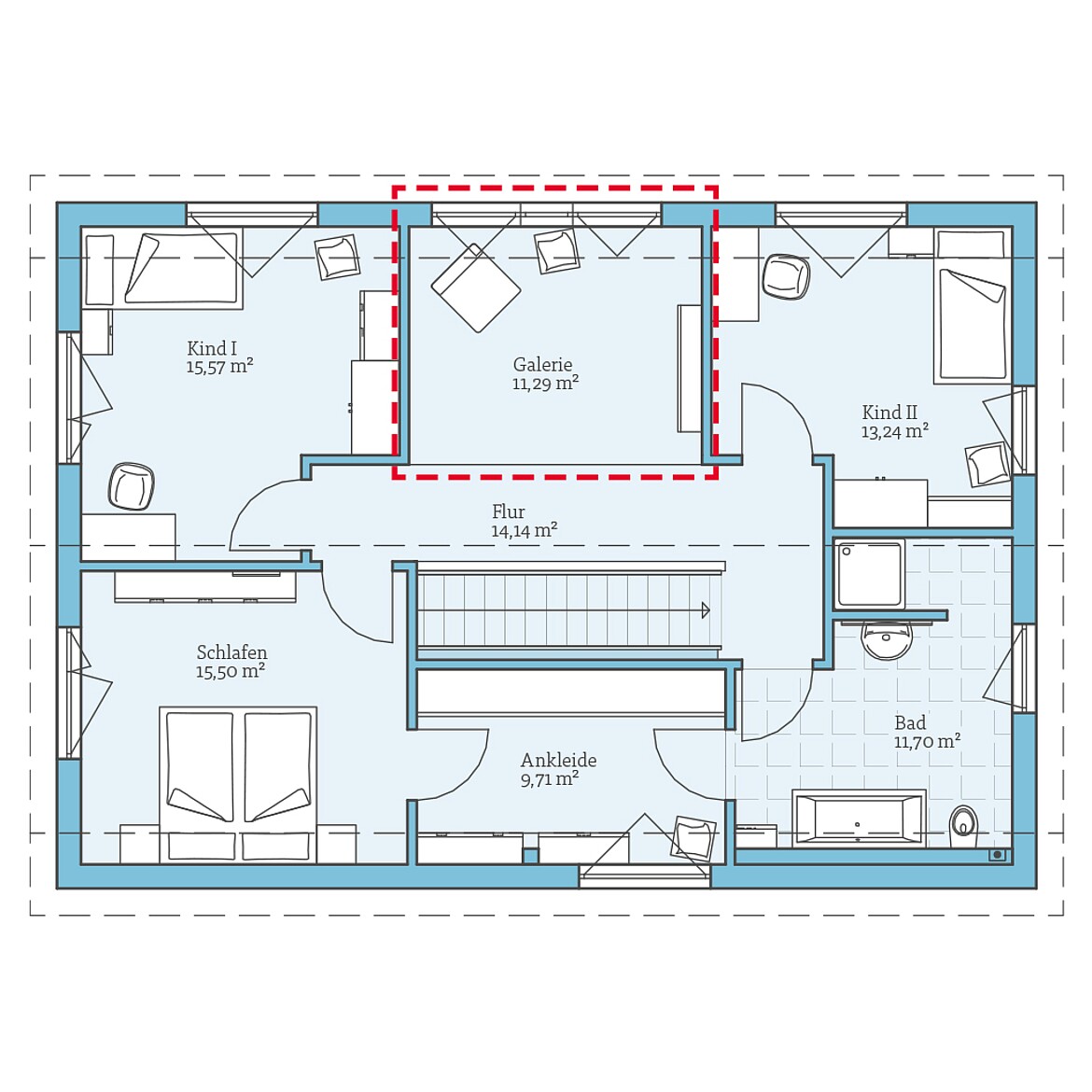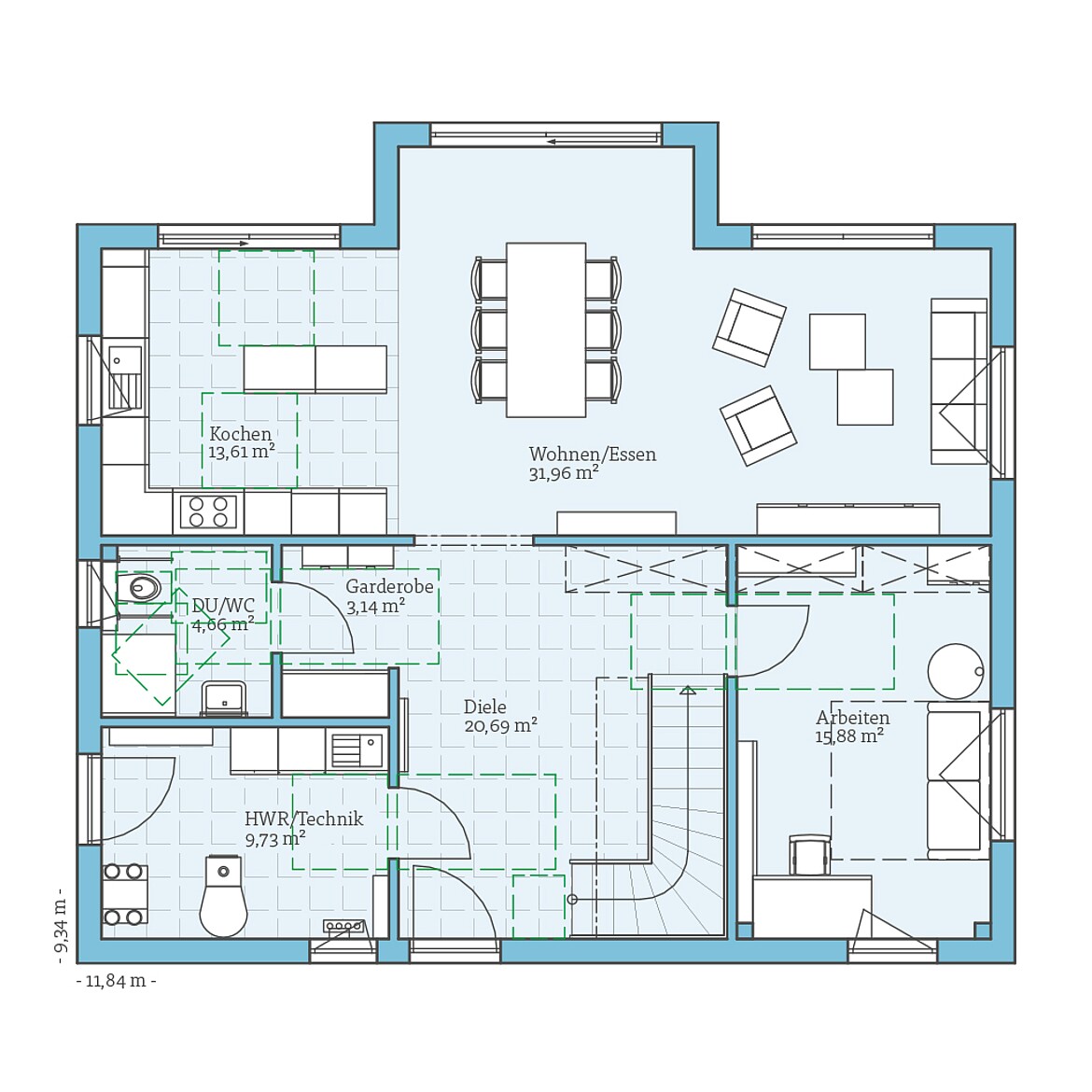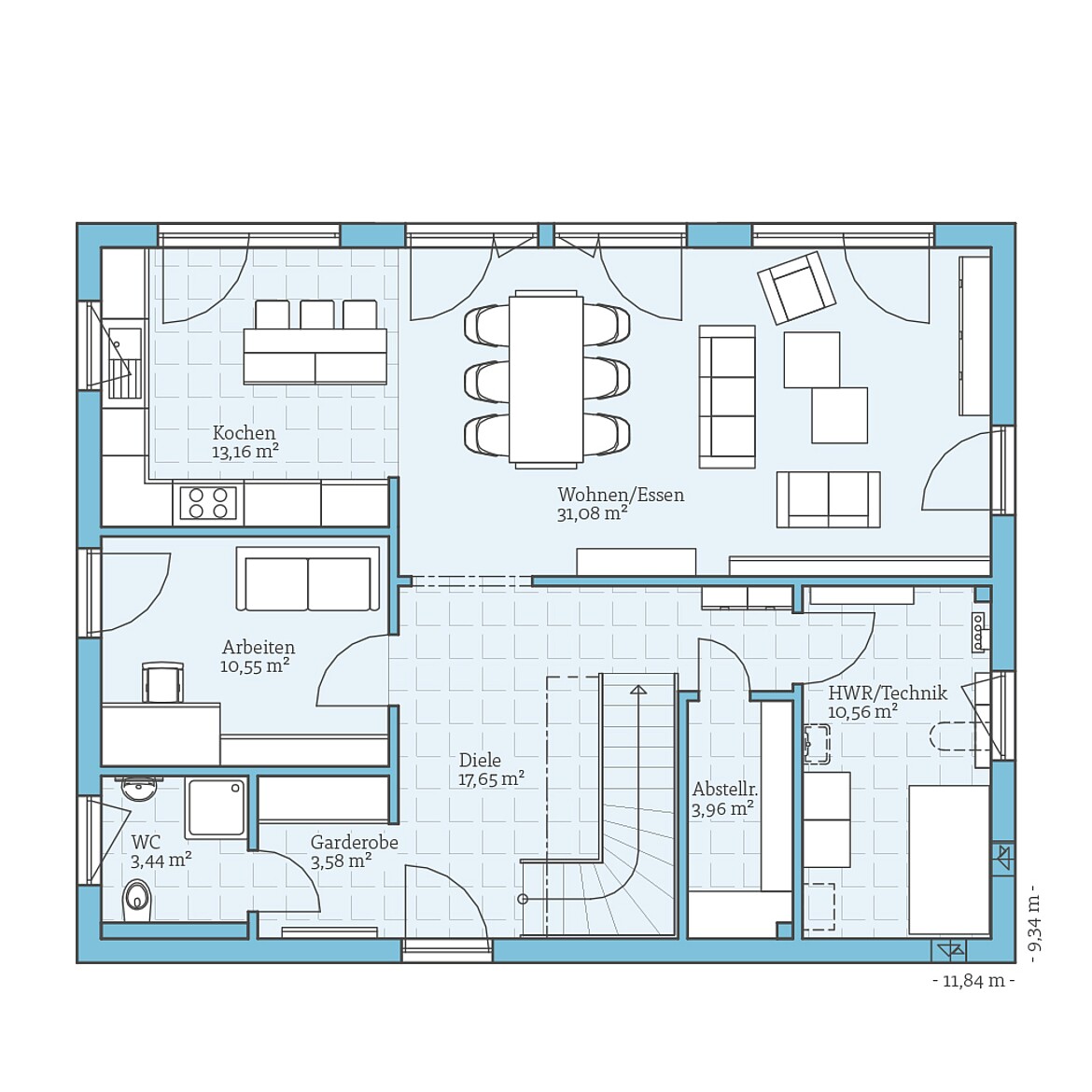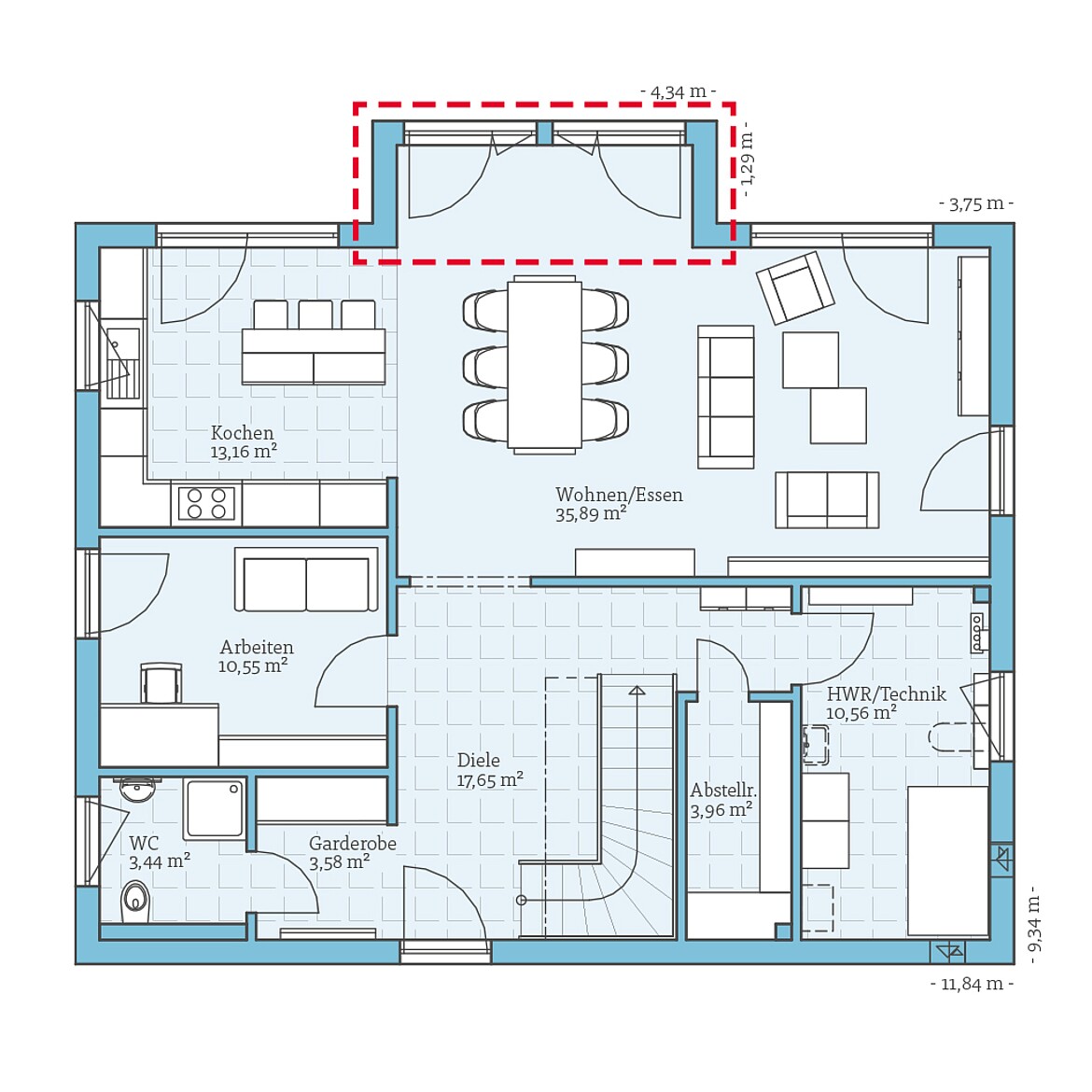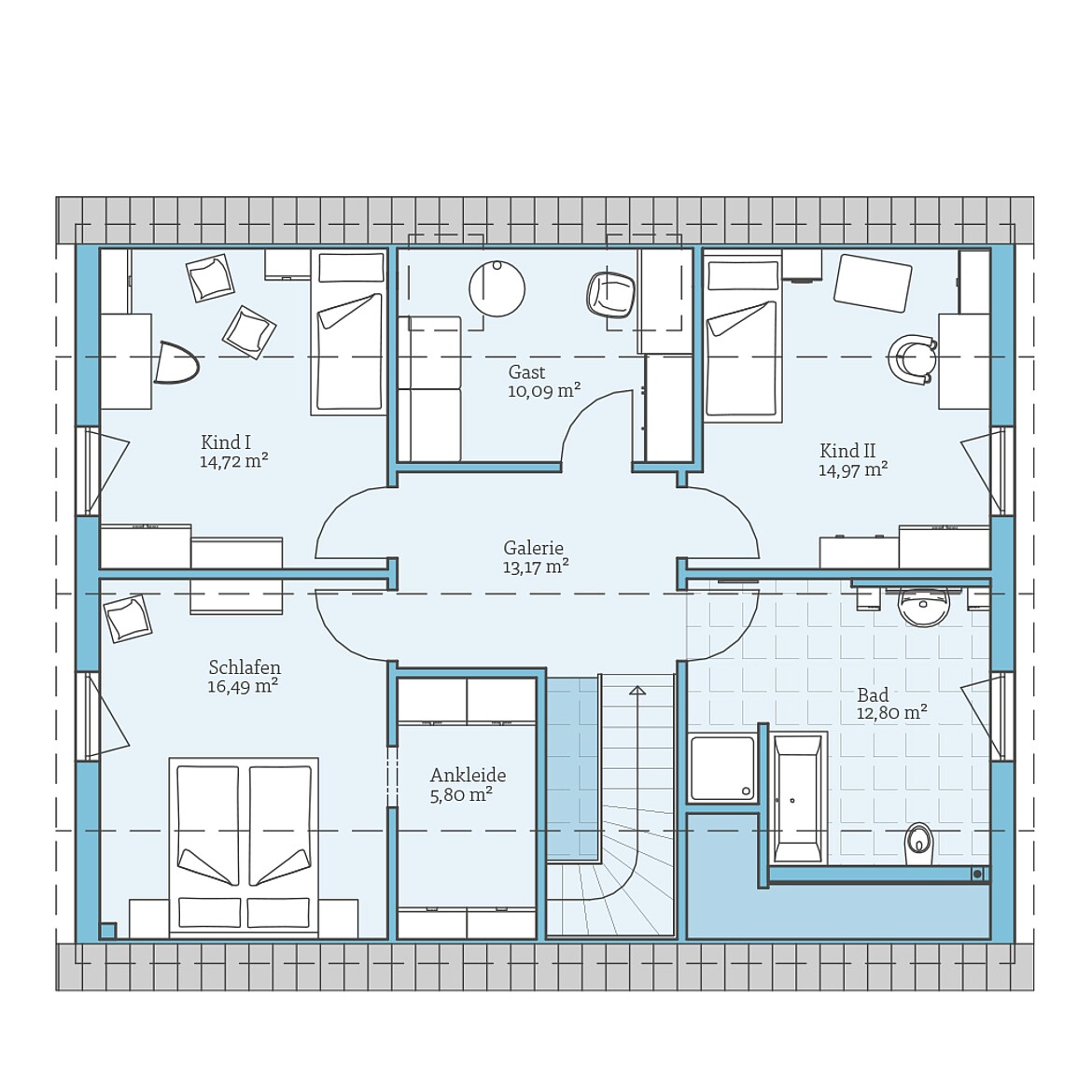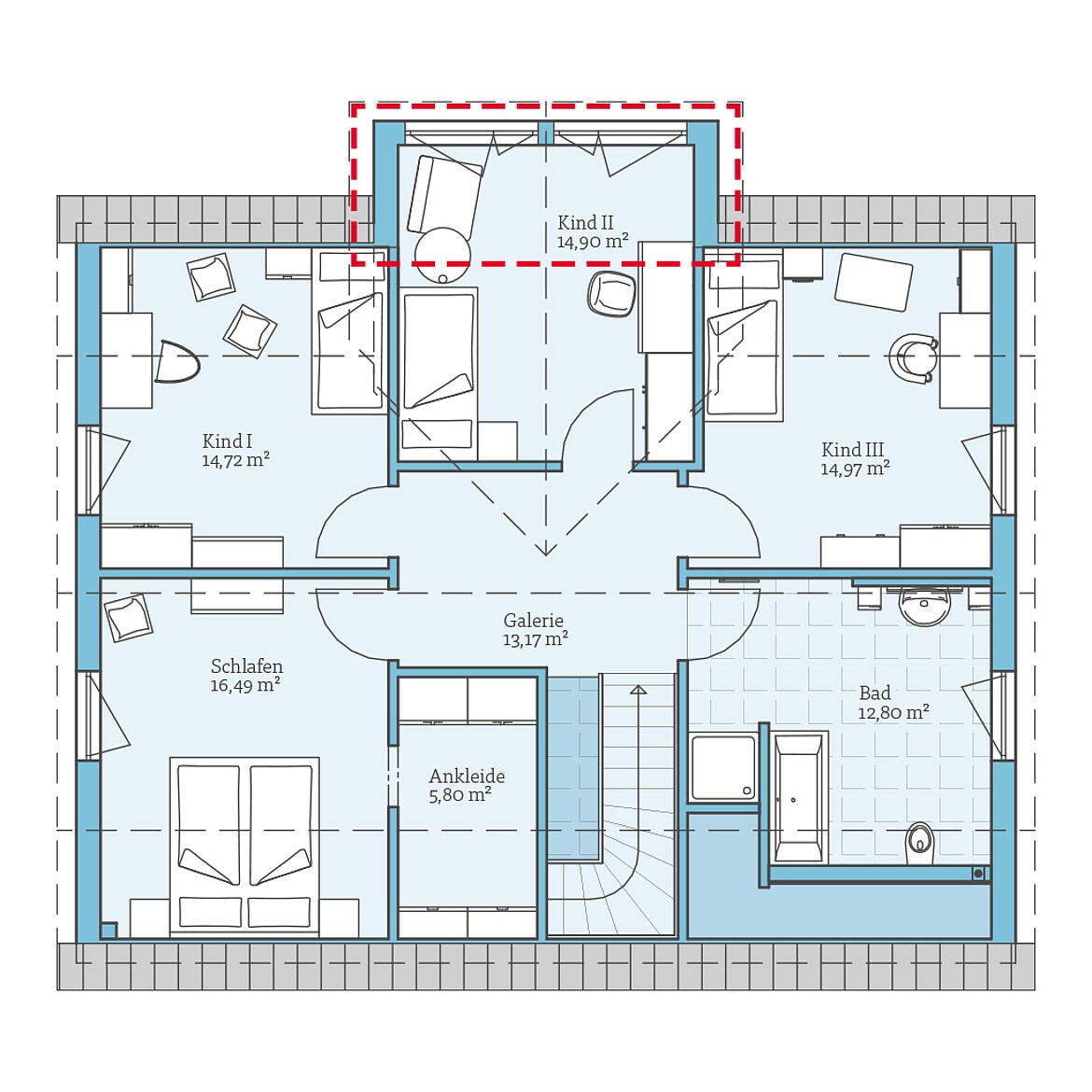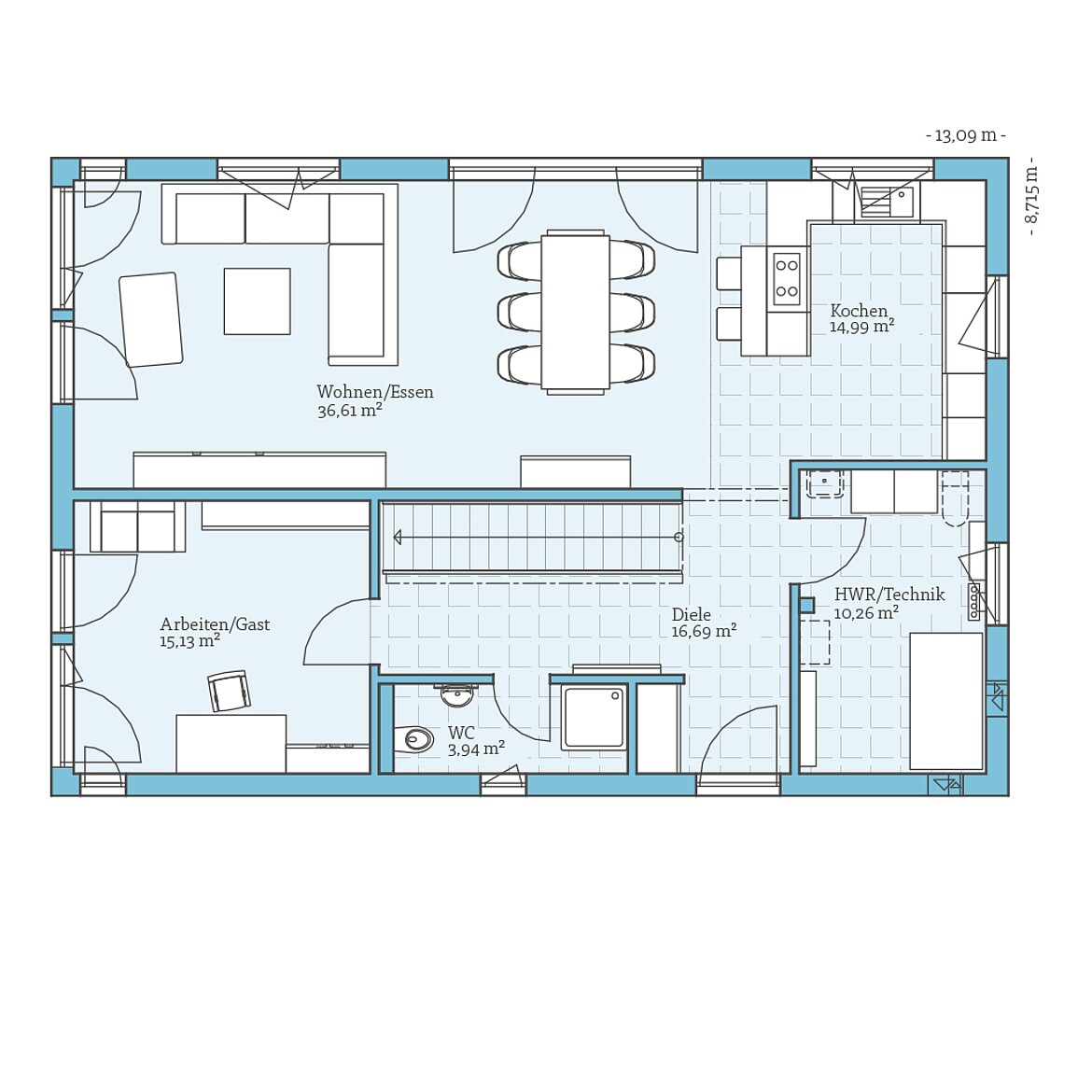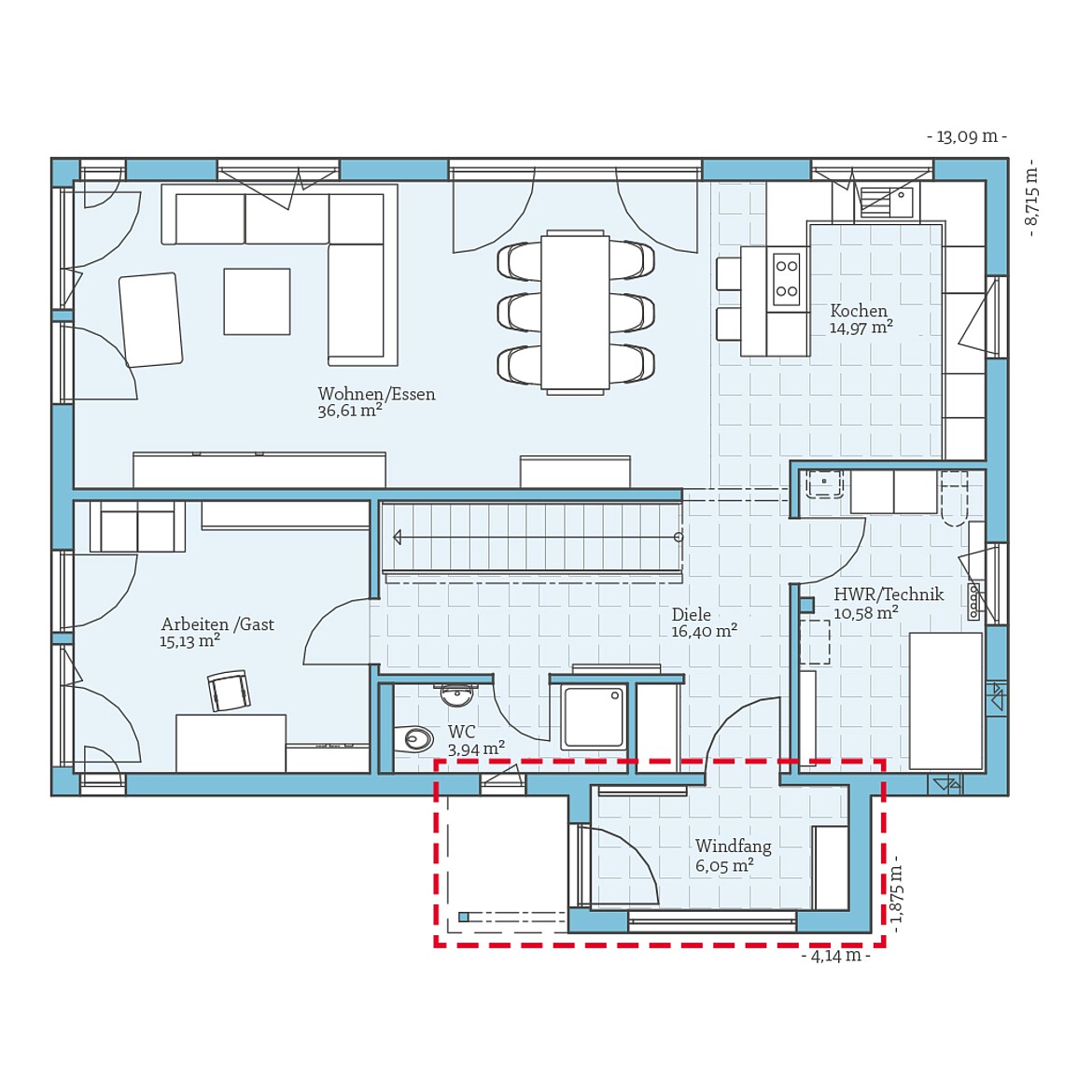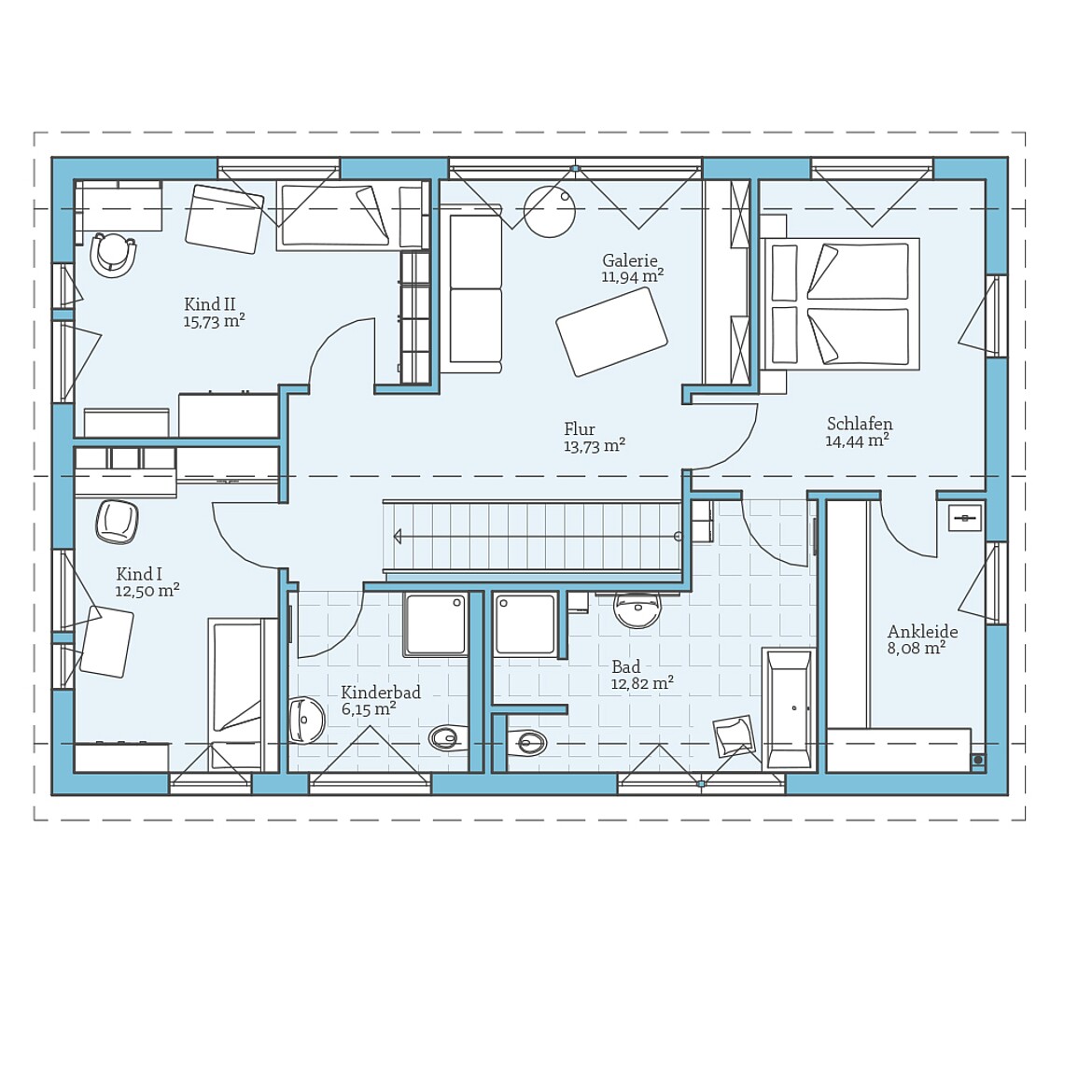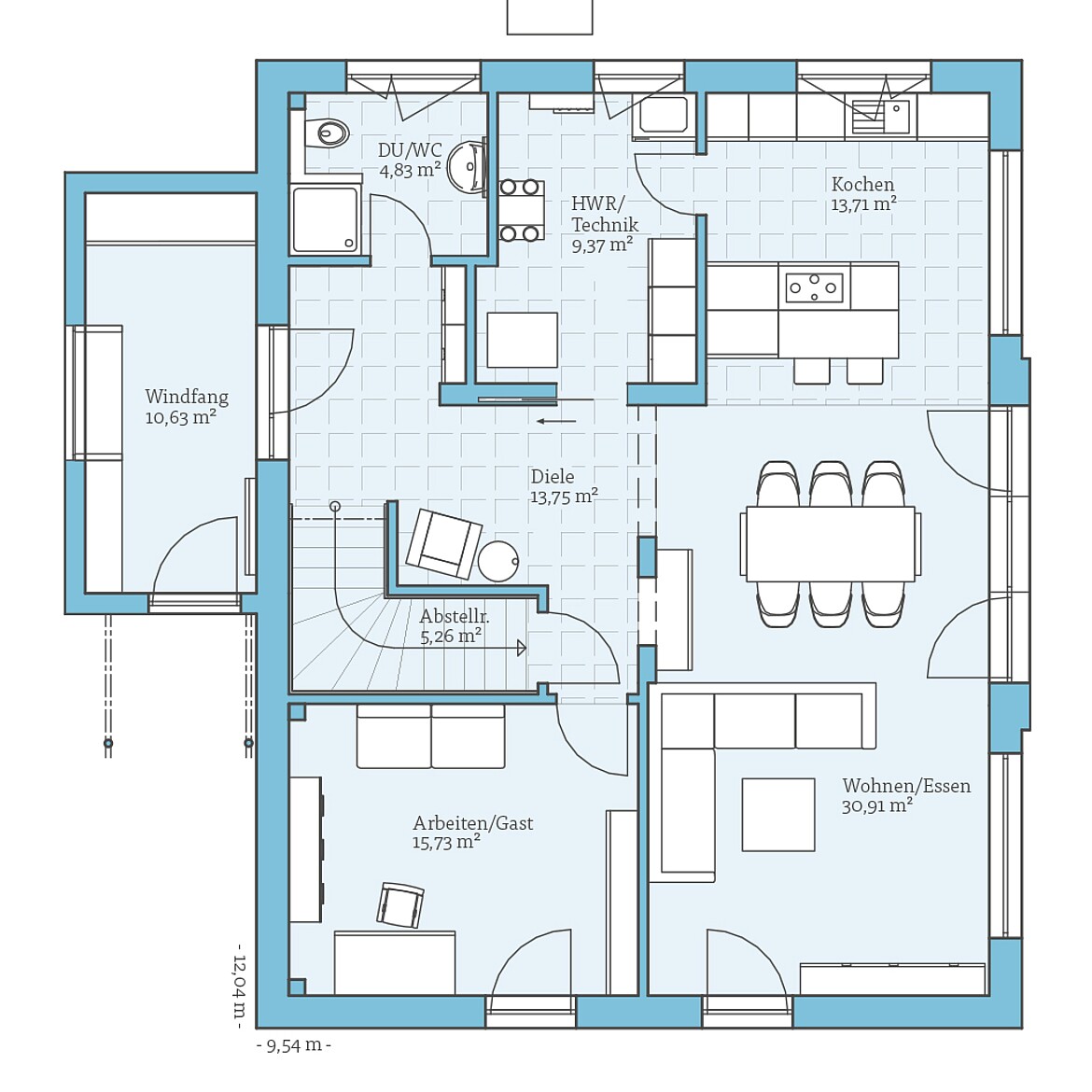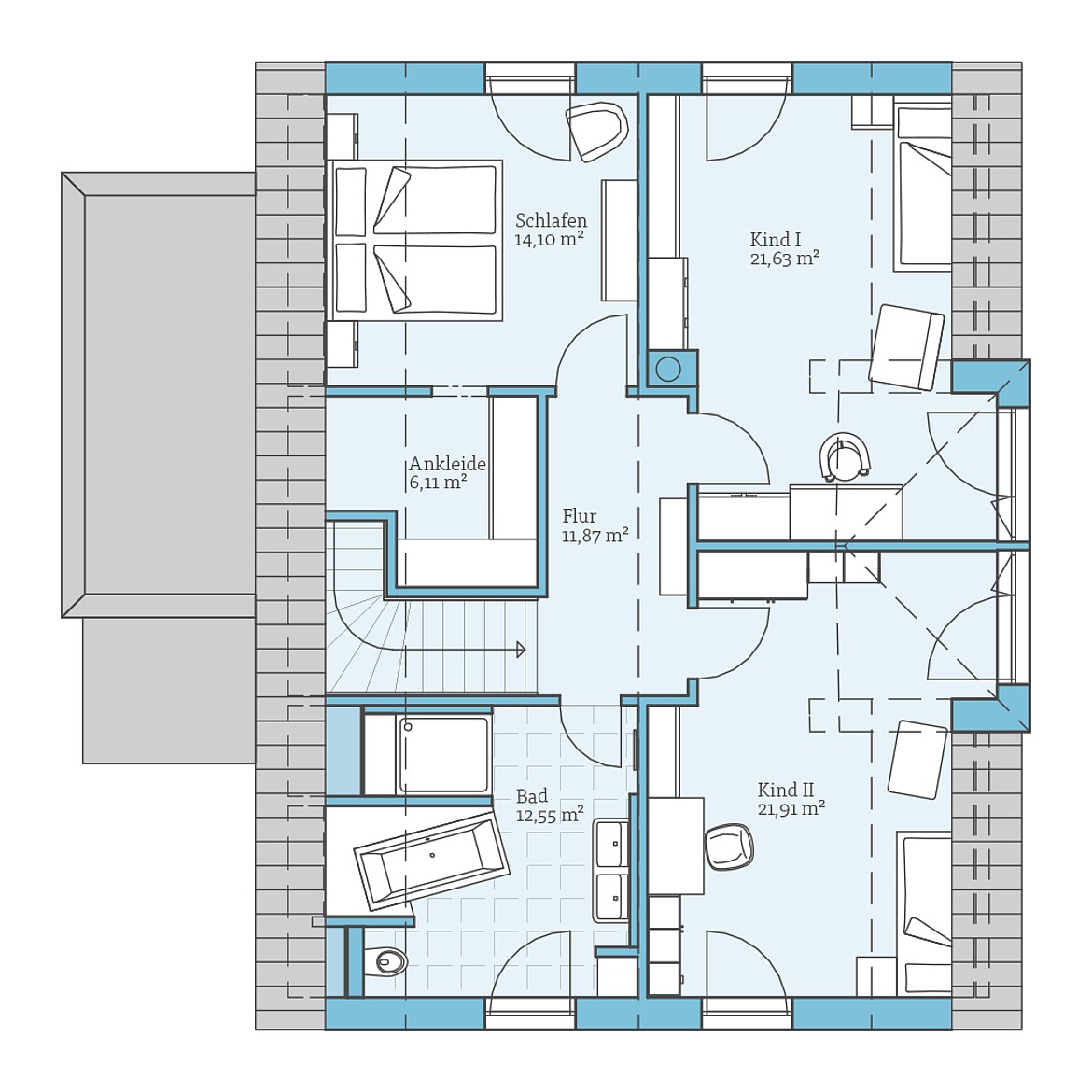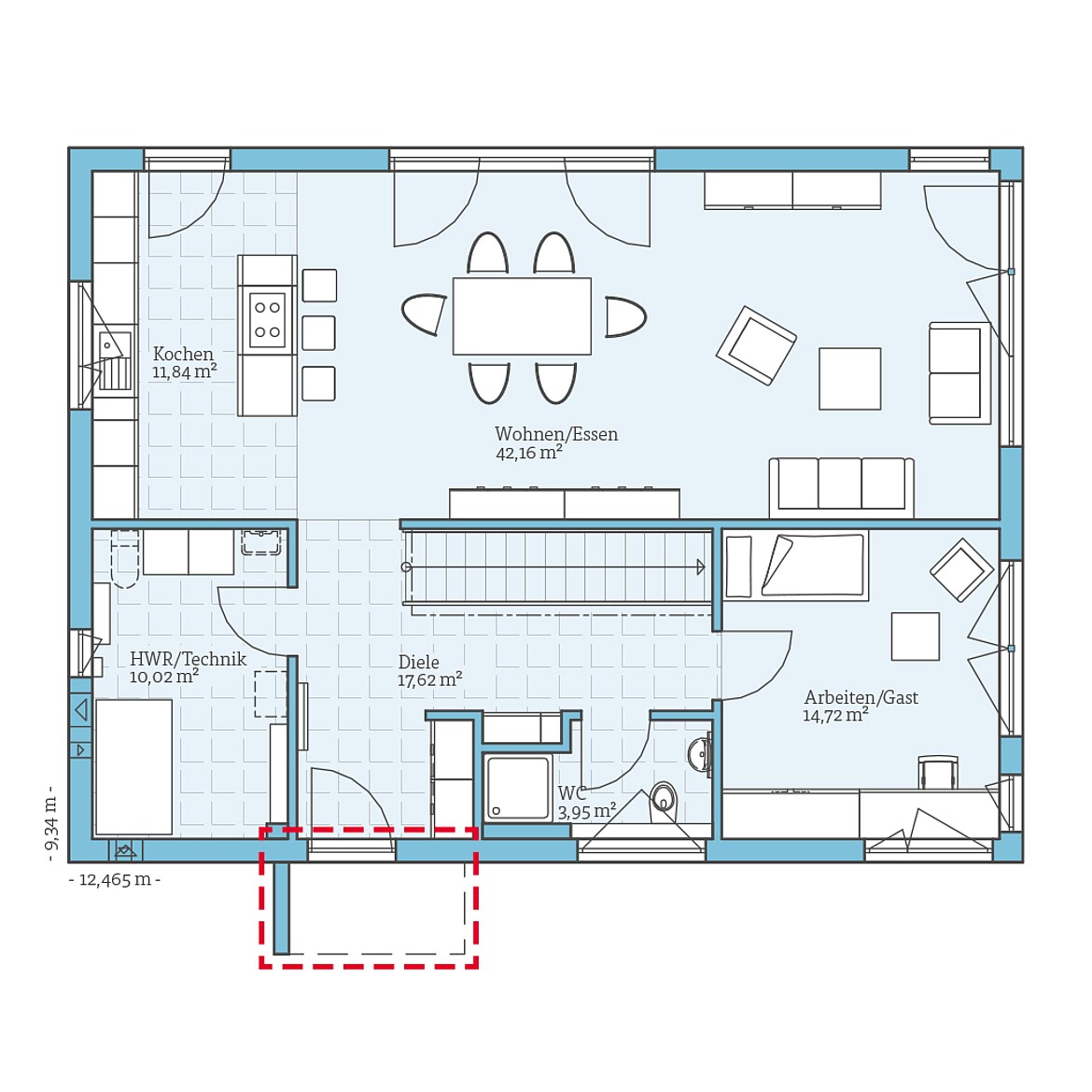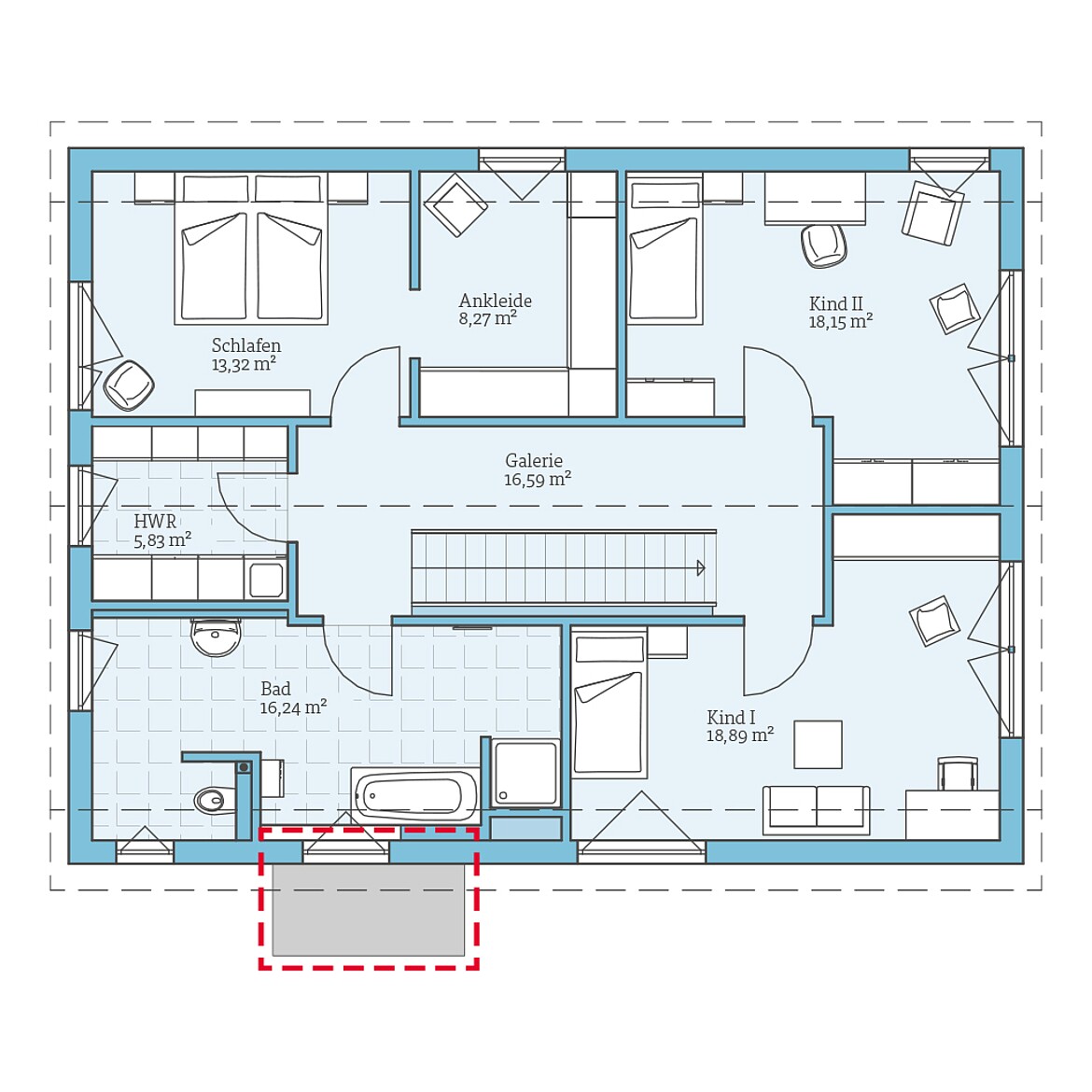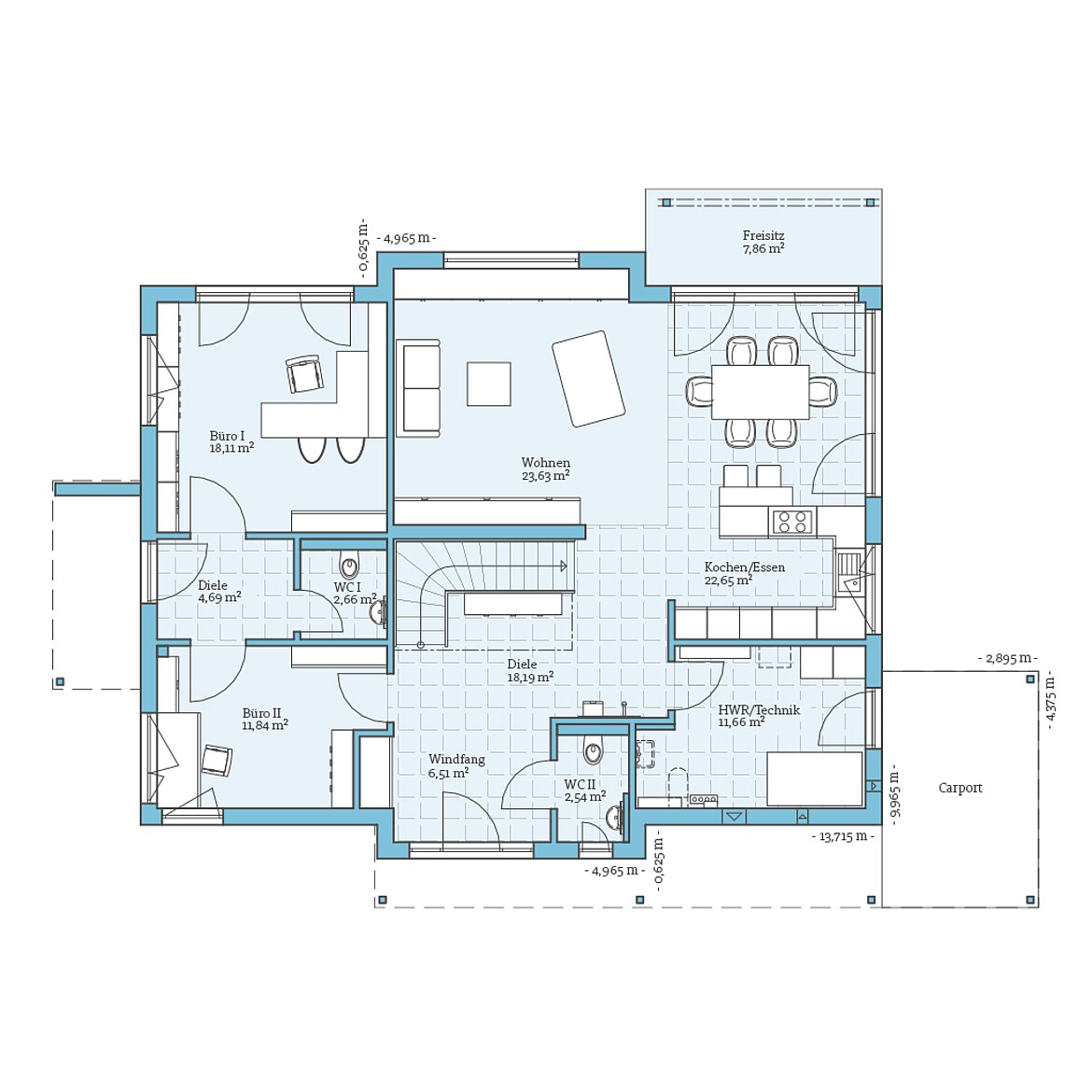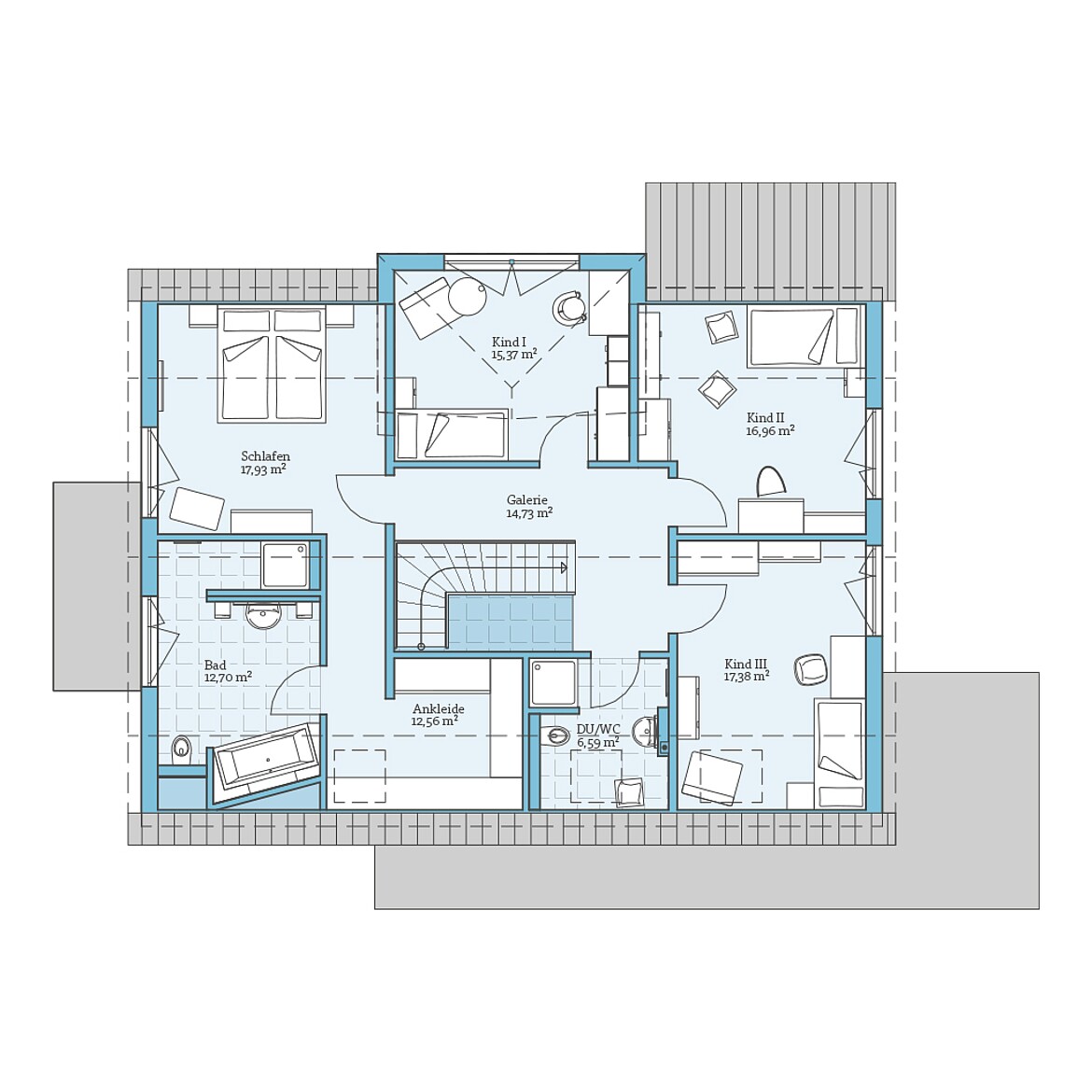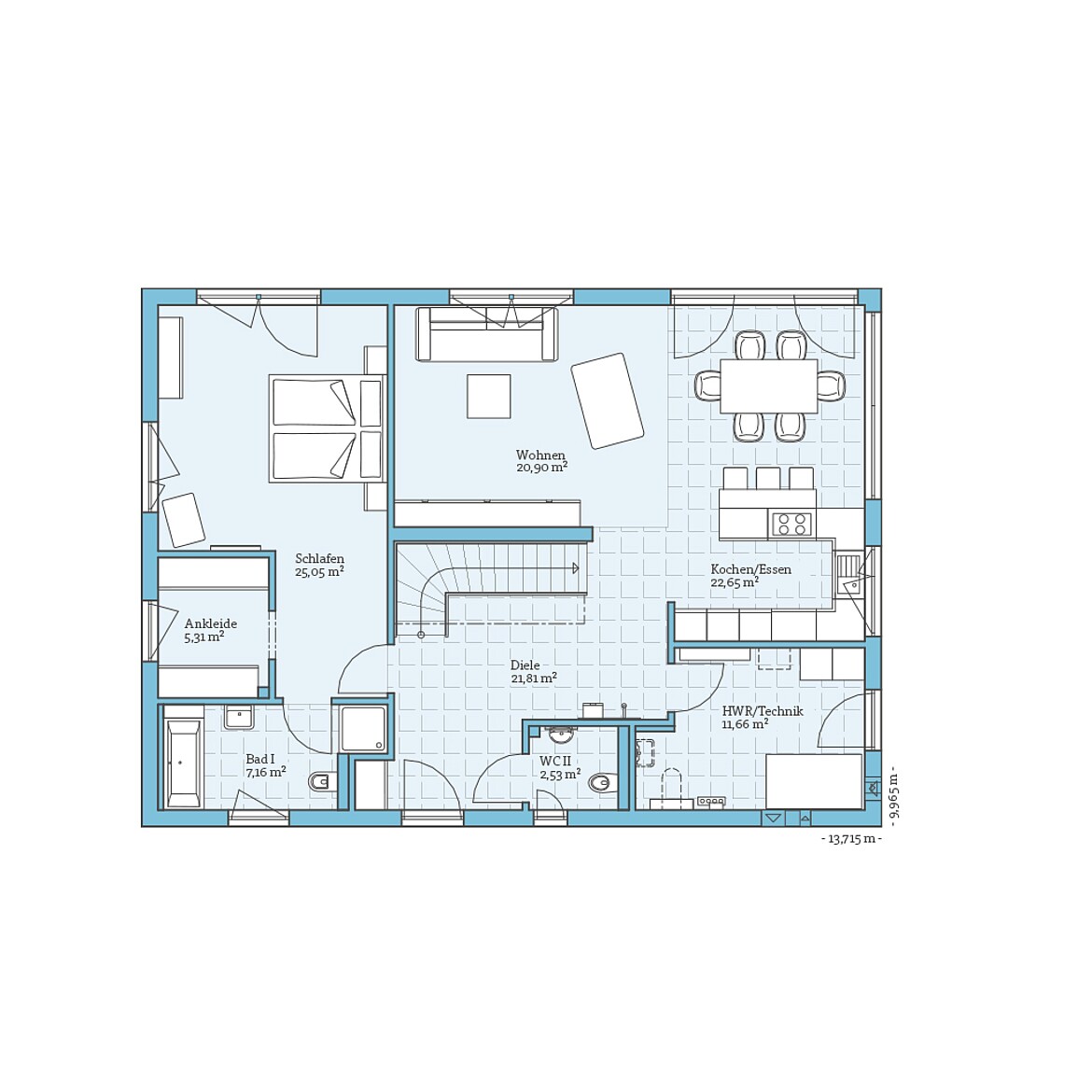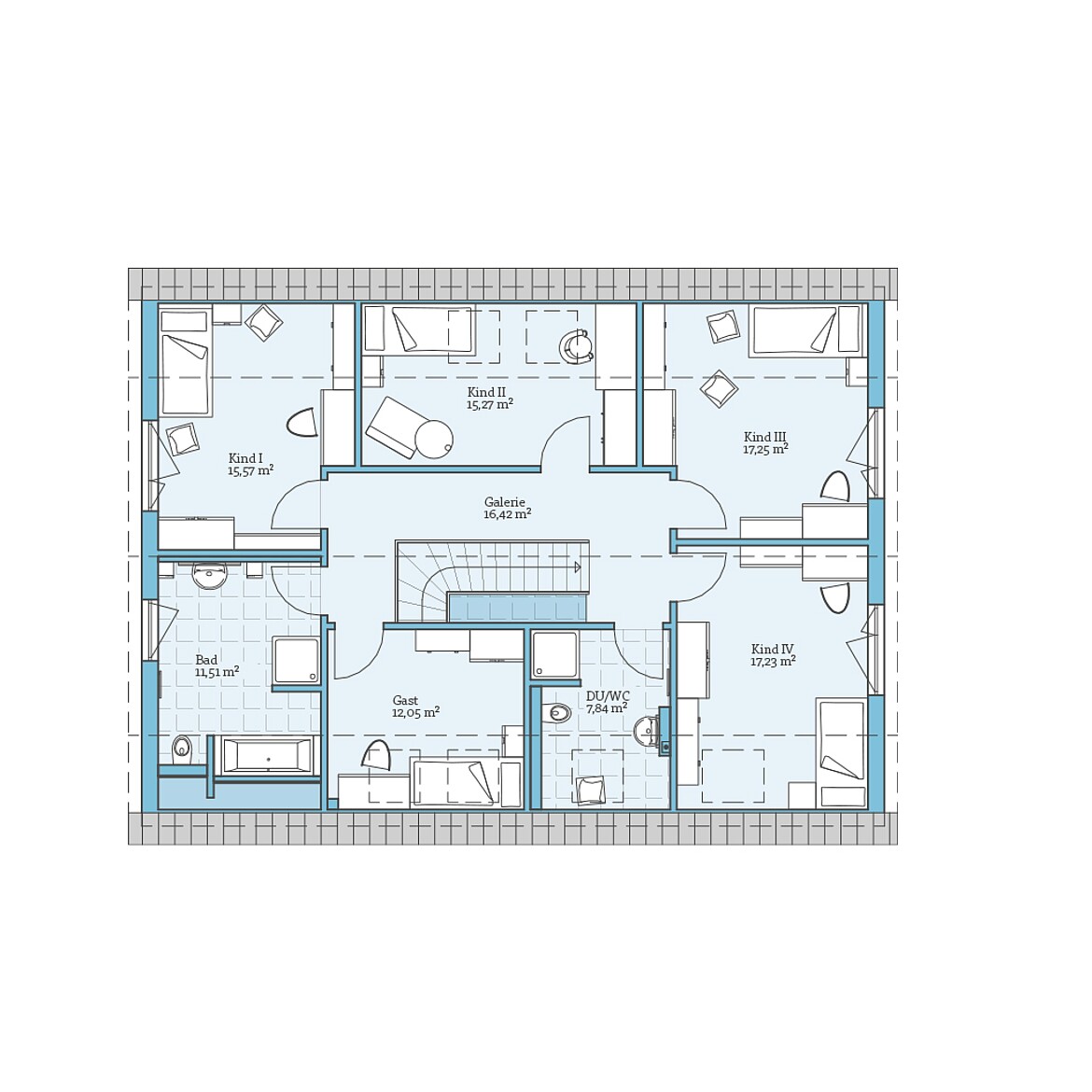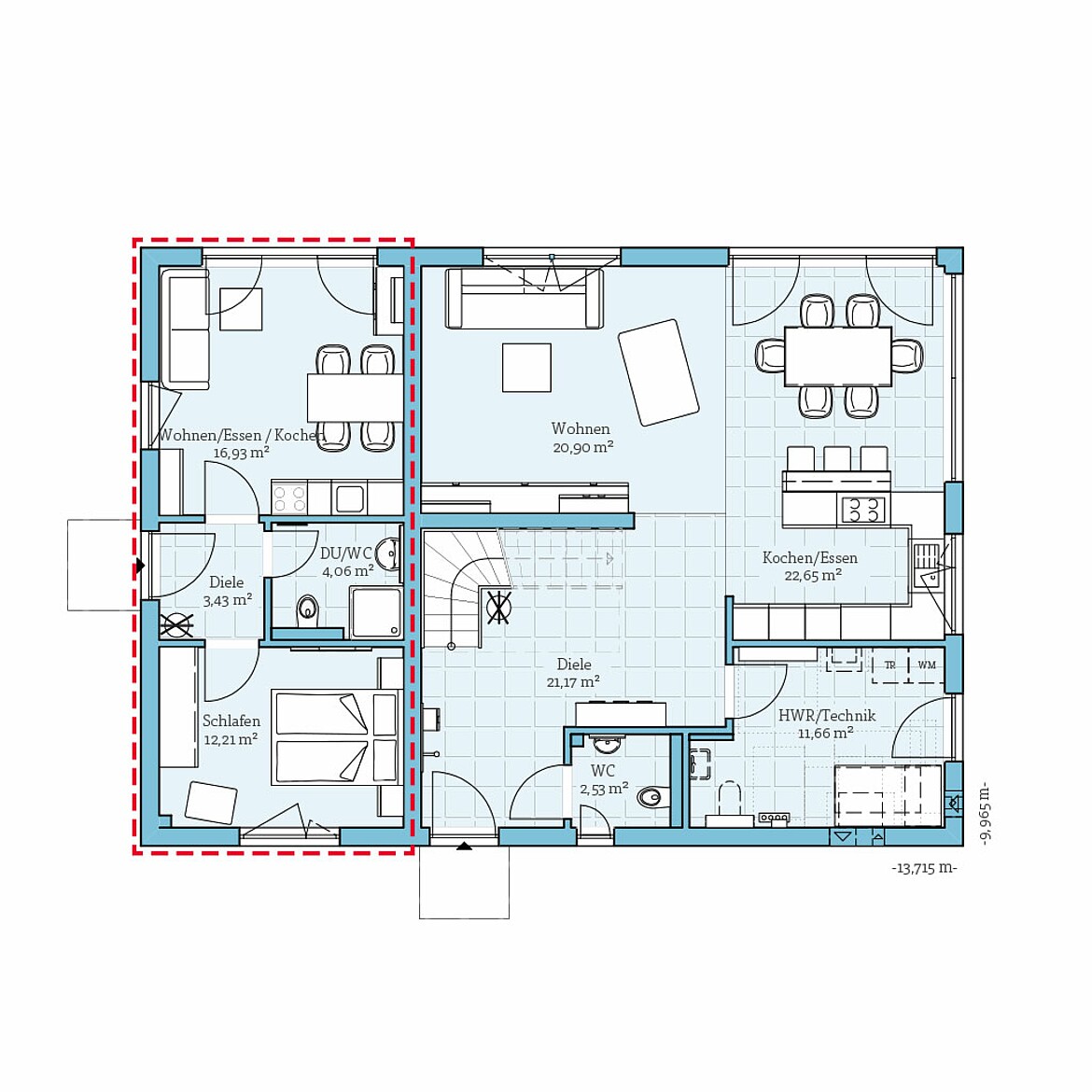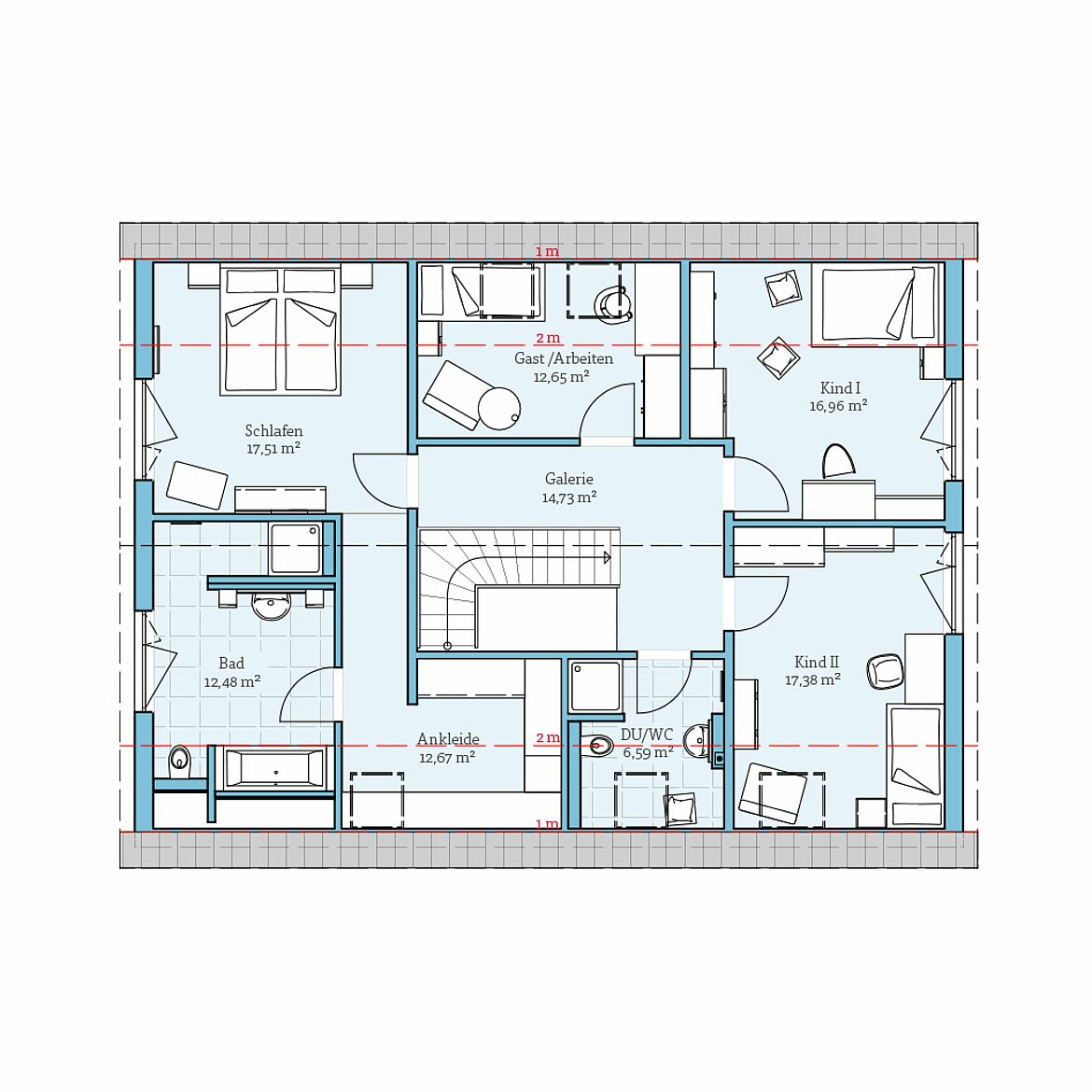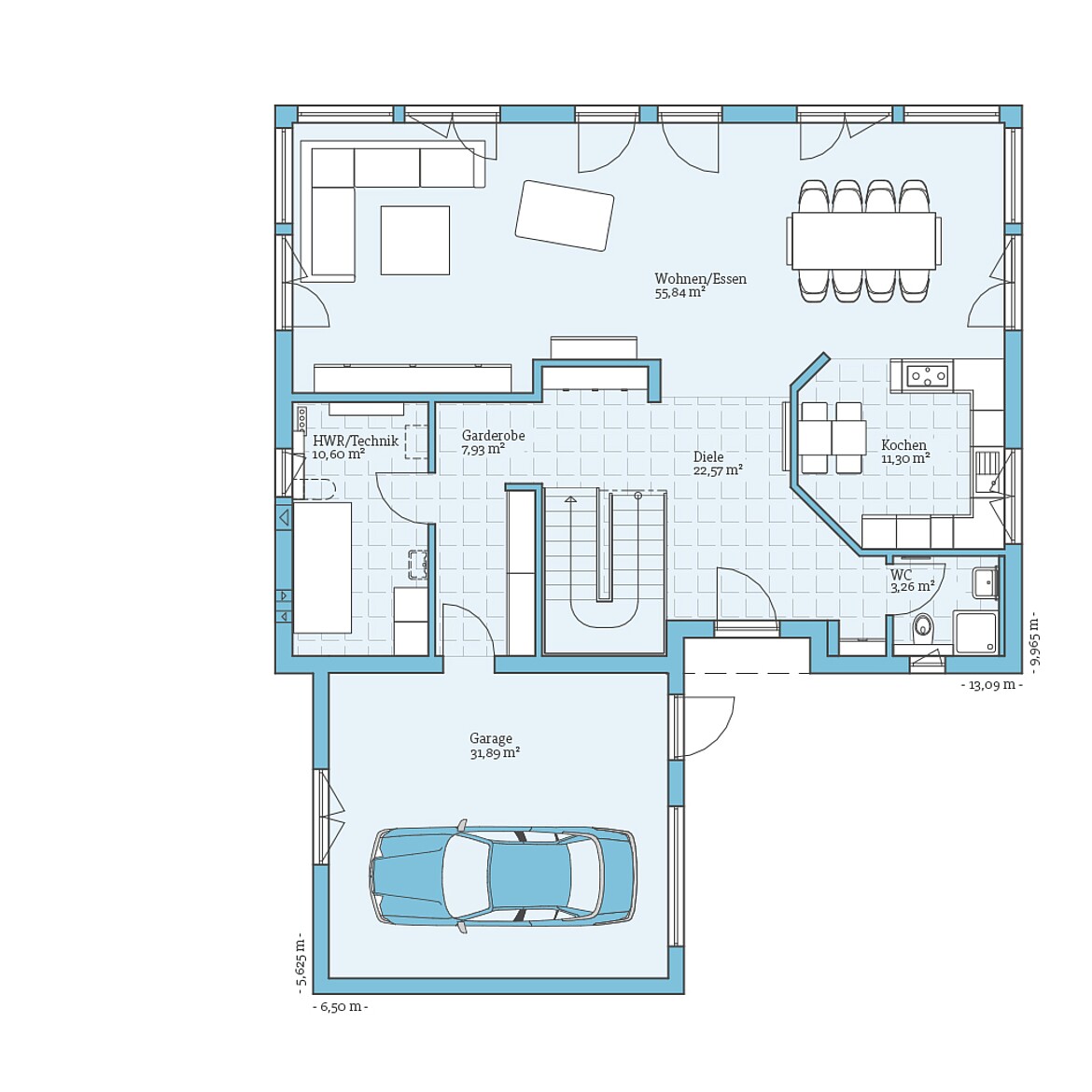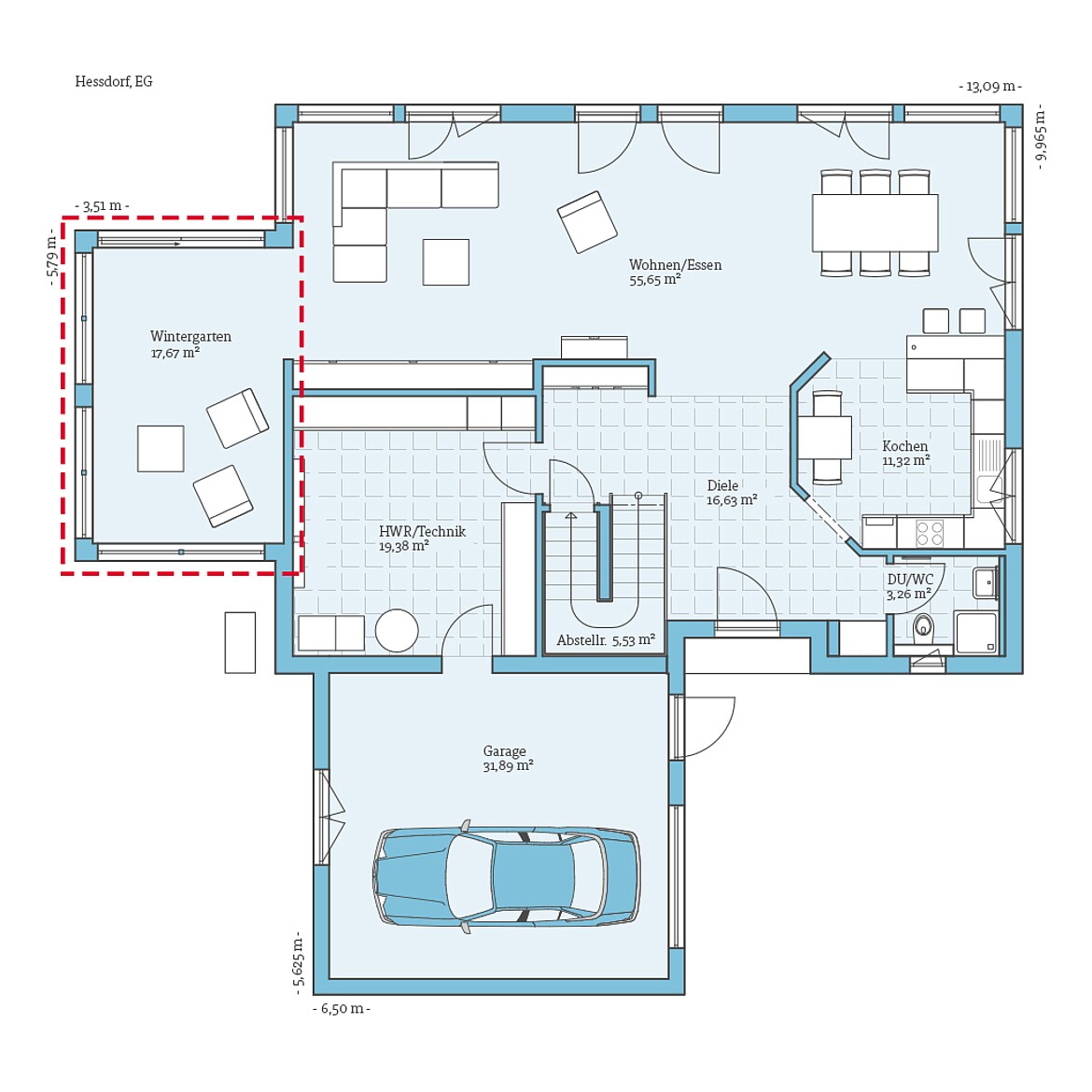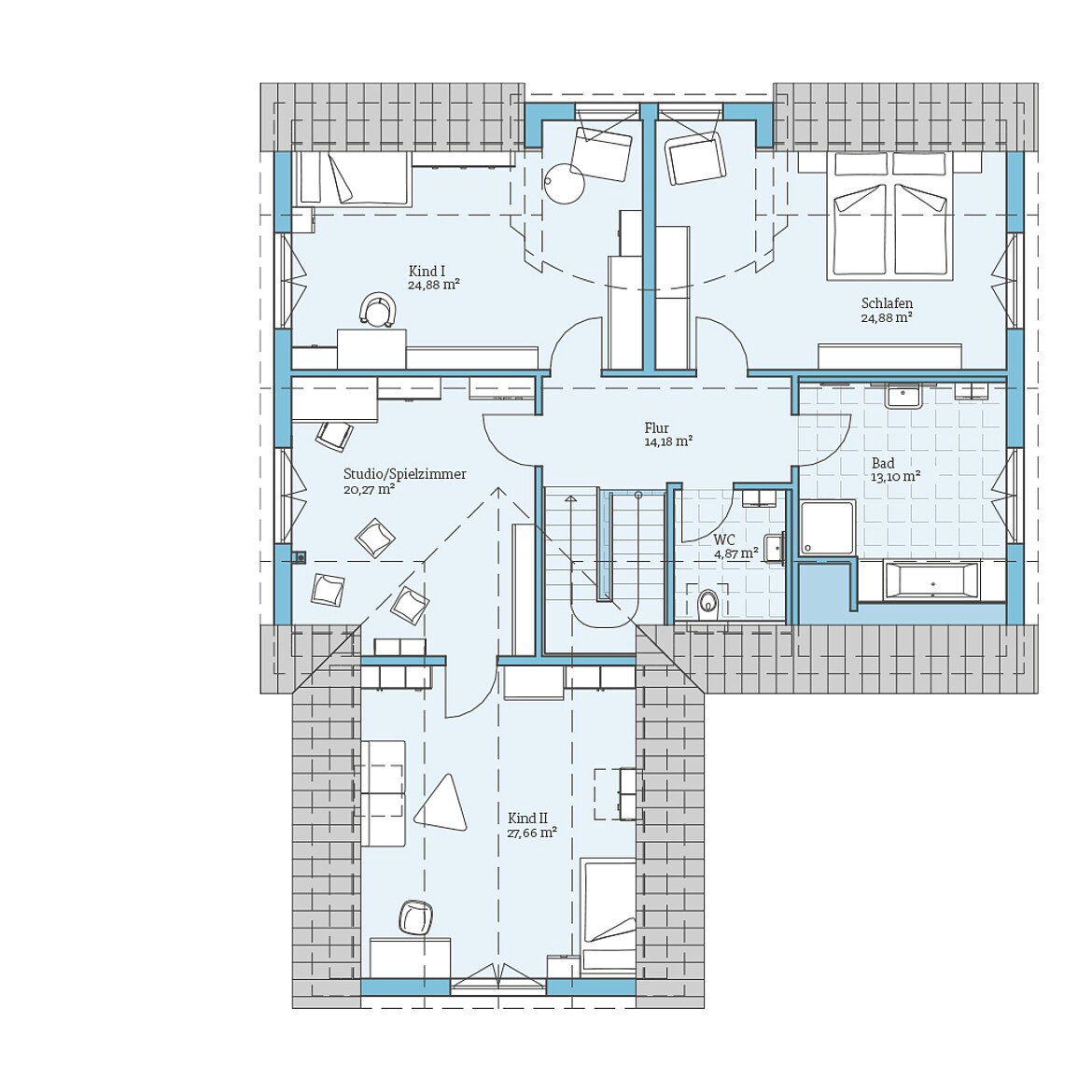Large house plan – space and comfort for large families
When planning a floor plan for a large family with several children, it is particularly important that there is enough space for all family members. Our architects have designed a number of floor plans for single family houses that offer plenty of space. Be inspired and gather ideas for your own home for the whole family, which we will then plan with you individually according to your wishes and needs.
Single-family house floor plans with 174 m² of floor space – planning option bay window & dwarf gable
Single-family house floor plans with 183 m² of floor space – planning option vestibule & air space above the dining area
Single-family house floor plans with 183 m² of floor space
Single family house floor plans with 182 m² of floor space – planning option dwarf gable
Single-family house floor plans with 193 m² of floor space – planning option vestibule
Single-family house floor plans with 192 m² of floor space
Single-family house floor plans with 198 m² of floor space – planning option front door canopy
Single-family house floor plans with 244 m² of floor space
Single-family house floor plans with 240 m² of floor space
Floor plan of large house with 234 m² floor space
Single-family house floor plans with 273 m² of floor space – planning option conservatory

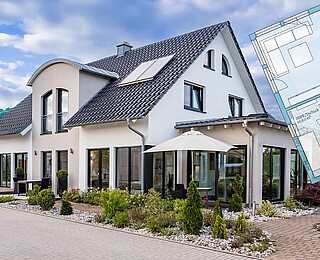
Floor plan large house
Special features
Floor plans for large families are characterised above all by a large living, dining and cooking area, several children's rooms, a spacious family bathroom and additional shower-bathrooms and plenty of storage space.
Find out what else you need to consider when planning in our eleven tips for the perfect floor plan: from the optimal orientation of the house to planning with a basement and possible requirements from the development plan.
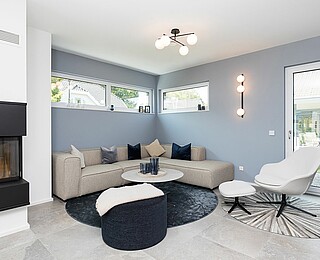
The living and dining area
The living area should be generously planned, as it will most likely become the centre of daily family life. A large sofa or other comfortable seating will ensure that every family member can find their favourite spot and that it doesn't get too cramped during a movie night together. The dining area should also have a large table that seats everyone and can also be circled. An additional chest of drawers is also practical, as board games, puzzles and other toys can be stored in it.
An open-plan living, dining and cooking area is ideal for families with small children. While the children play in the living room, parents can do the housework or cook while keeping an eye on their children.
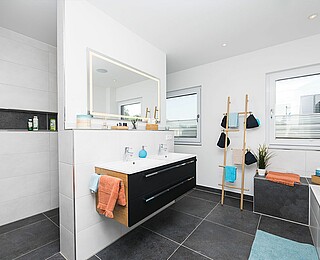
The bathroom
Clever bathroom planning is required to ensure that the whole family gets to work or school on time in the morning: several bathrooms are ideal, for example a large bathroom and an additional shower room, spread over different floors. Double washbasins or several independently usable toilets can further relax the situation in the bathroom. Half-height walls or the T-solution also provide more privacy.
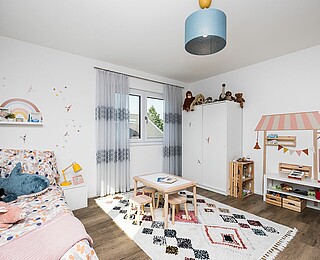
The children's room
When planning floor plans for large families, particular attention is paid to the children's rooms. The children's room serves as a place for children to play and sleep and as a retreat. Younger children often like to share a room with a sibling of a similar age. However, as children get older and want to invite friends over or do their schoolwork in peace, they benefit from having their own room and appreciate the privacy. Until then, the future children's room can also be used as a guest room or study.
How big a children's room should be naturally depends on the floor plan and your own needs. If there is more space available, there will of course be greater scope for development and, when the child reaches adolescence, the room can be furnished with its own sofa, for example. Sufficient Internet and television connections should also be planned for at an early stage.
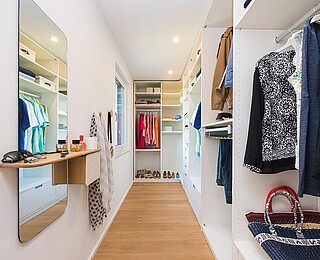
Create enough storage space
With children, a household tends to get bigger and bigger: toys, clothes, bicycles and much more have to be stored somewhere. It is therefore particularly important to plan for sufficient storage space. When planning with a basement, there is usually enough space available. Without a basement, other storage areas must be created. It is therefore often useful if an entire room in the house can be used as a storage room.
Other storage options include the loft, built-in cupboards or a storage room under the stairs. But you can also store some things in a garage, a spare room in the cellar or a shed.
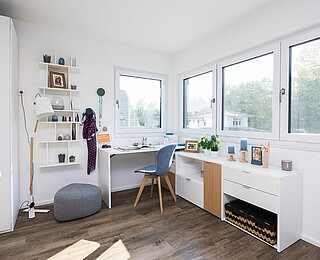
Variable planning – versatile use
Once the children move out, there are many different uses for the empty rooms. For example, the children's rooms can be converted into hobby rooms, such as a music room, a fitness room or a craft room.
A separate parents' area, for which there was previously not enough space due to the need for children's rooms, can also be converted after one or more children have moved out. For example, if you remove the wall to a room adjoining the bedroom, this can be used as a dressing room. If the installation of a sauna is an option, this should be taken into account when designing the house (e.g. a power connection).
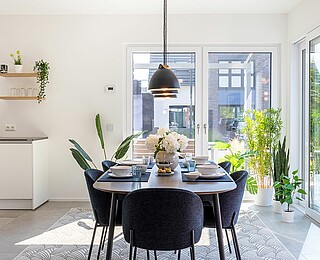
Turning one house into two residential units
Another option is to divide the house into two residential units. For example, while the parents live on the ground floor, one of the children can take over the upper floor. In order to be able to utilise this option, the future use of the rooms or the entire floor should already be considered when planning the house. For example, to turn the ground floor into an independent living unit, there should already be an office or a guest room that can then be used as a bedroom.
Important information about our floor plans for large families
You may find an alternative to our large house floor plan here:
Request without obligation & free of charge our prefabricated house catalog with detailed information about the company as well as all house designs or construction performance and equipment descriptions. In addition, you will find the prices for our campaign houses in our campaign brochure.
